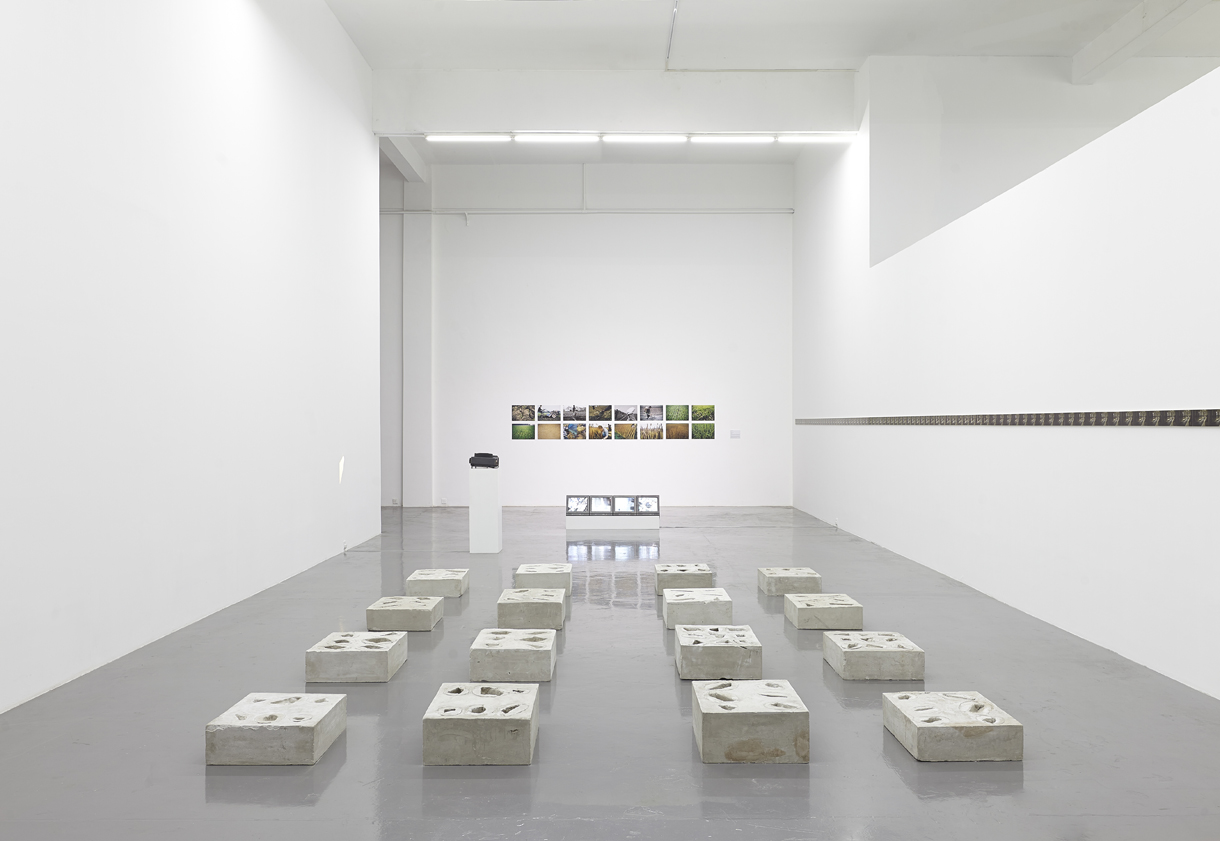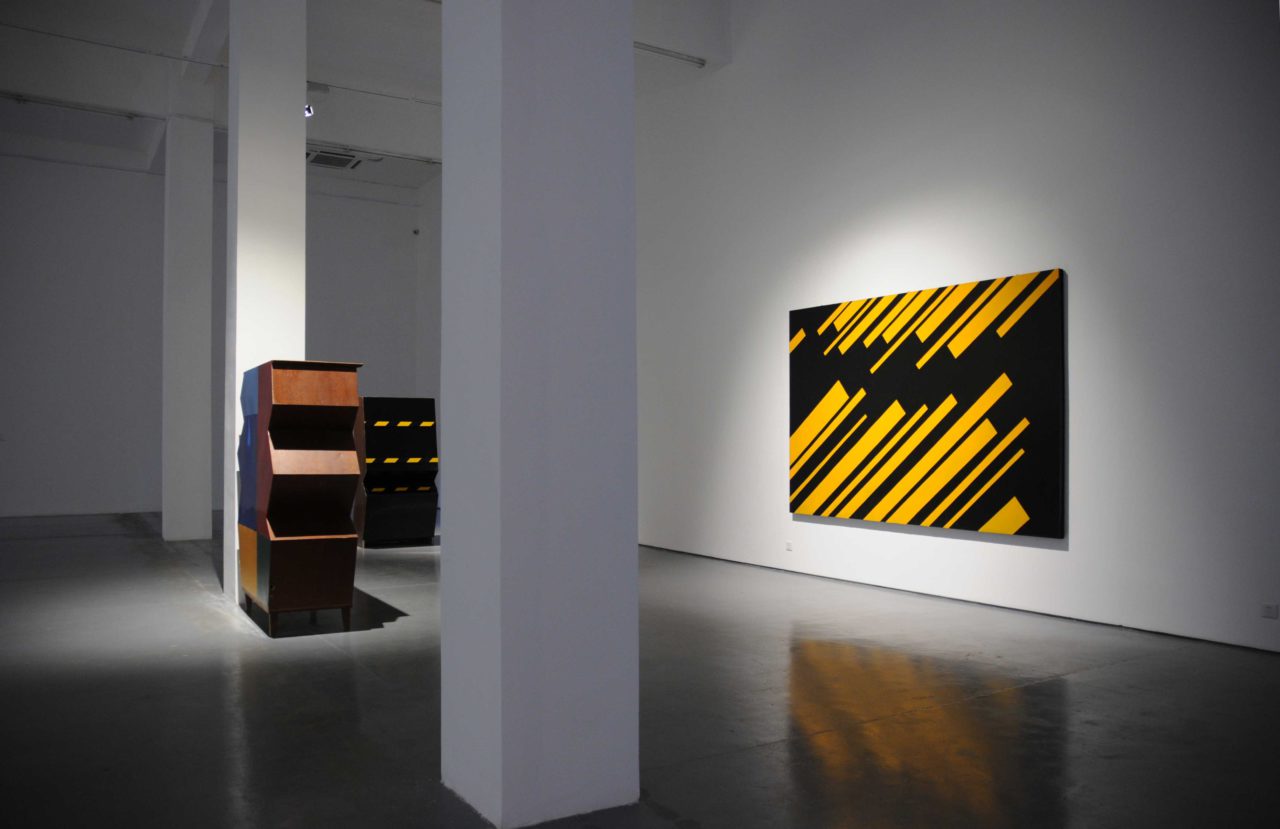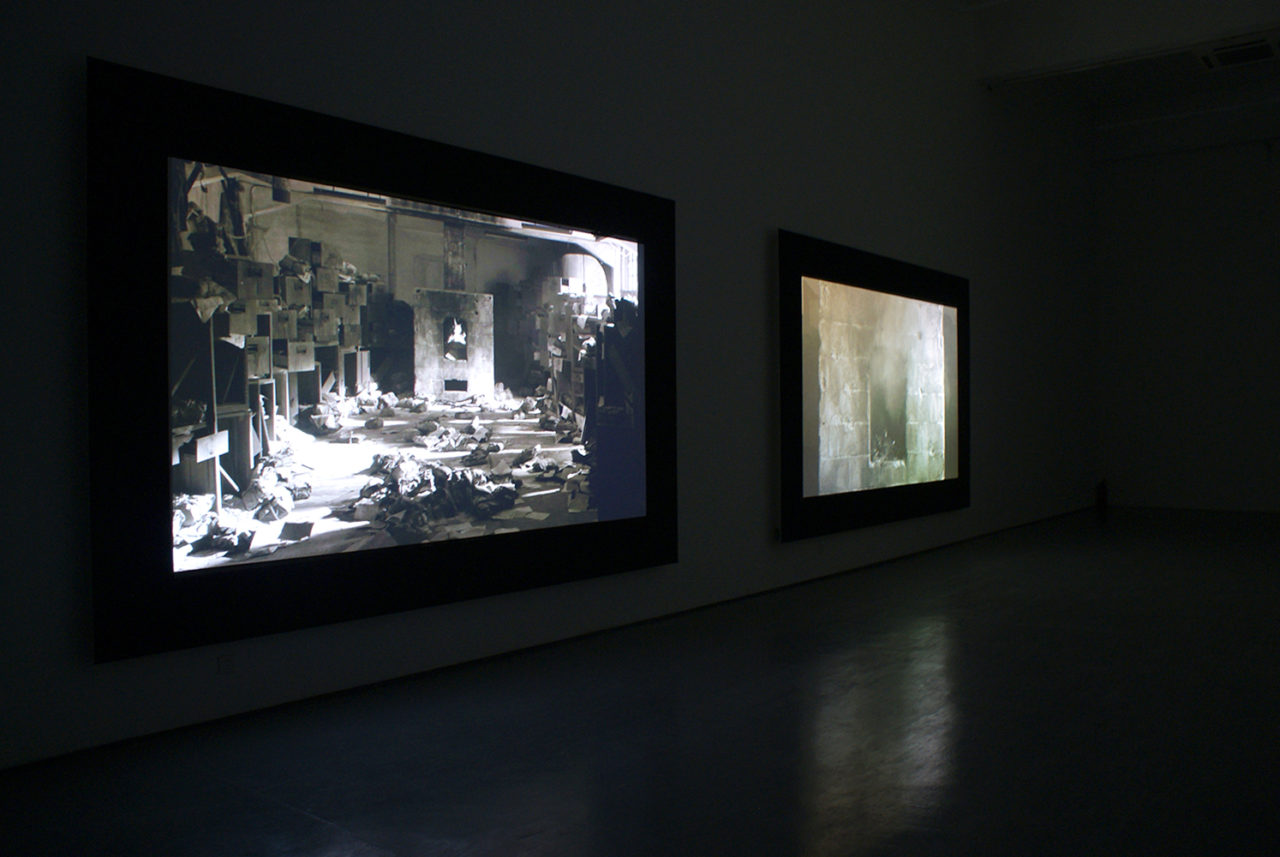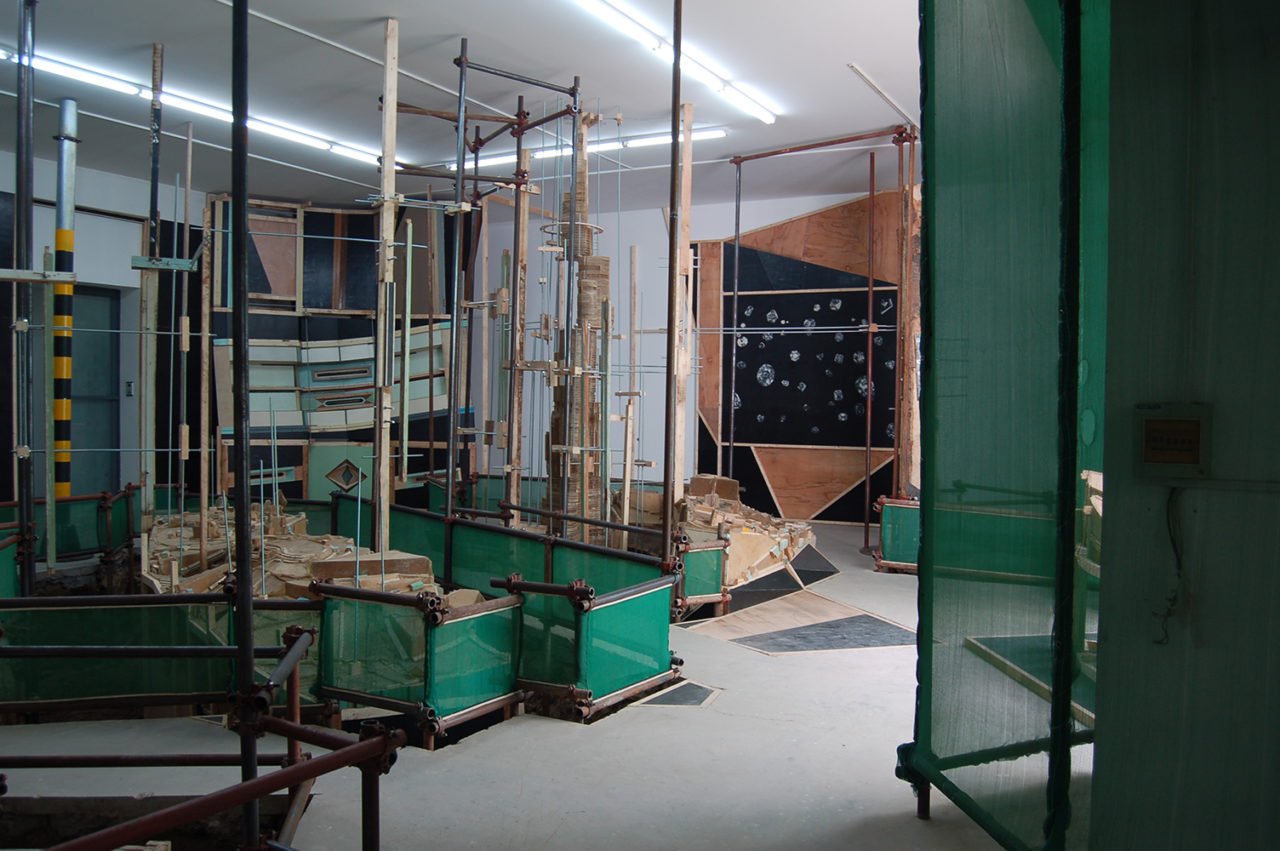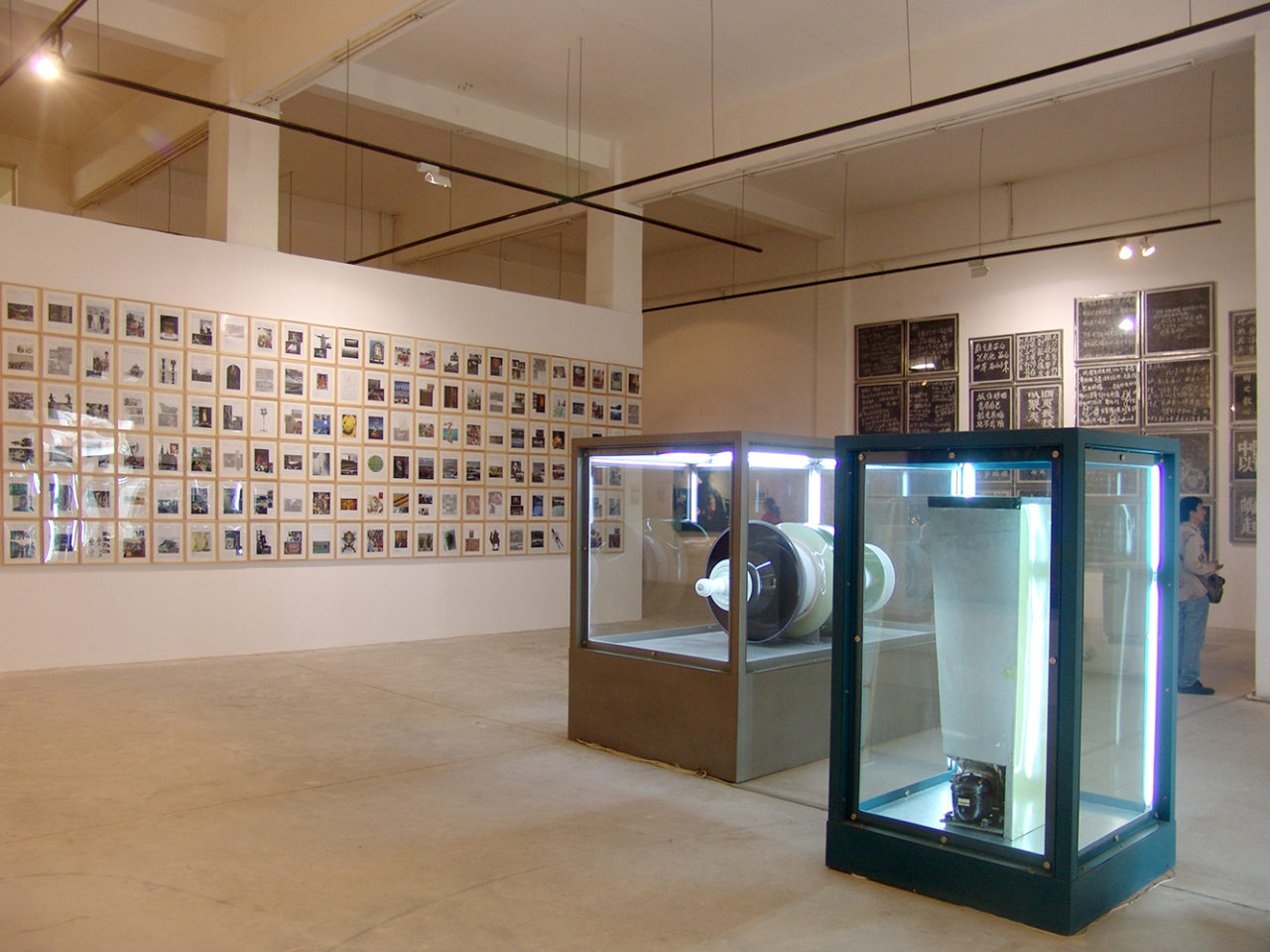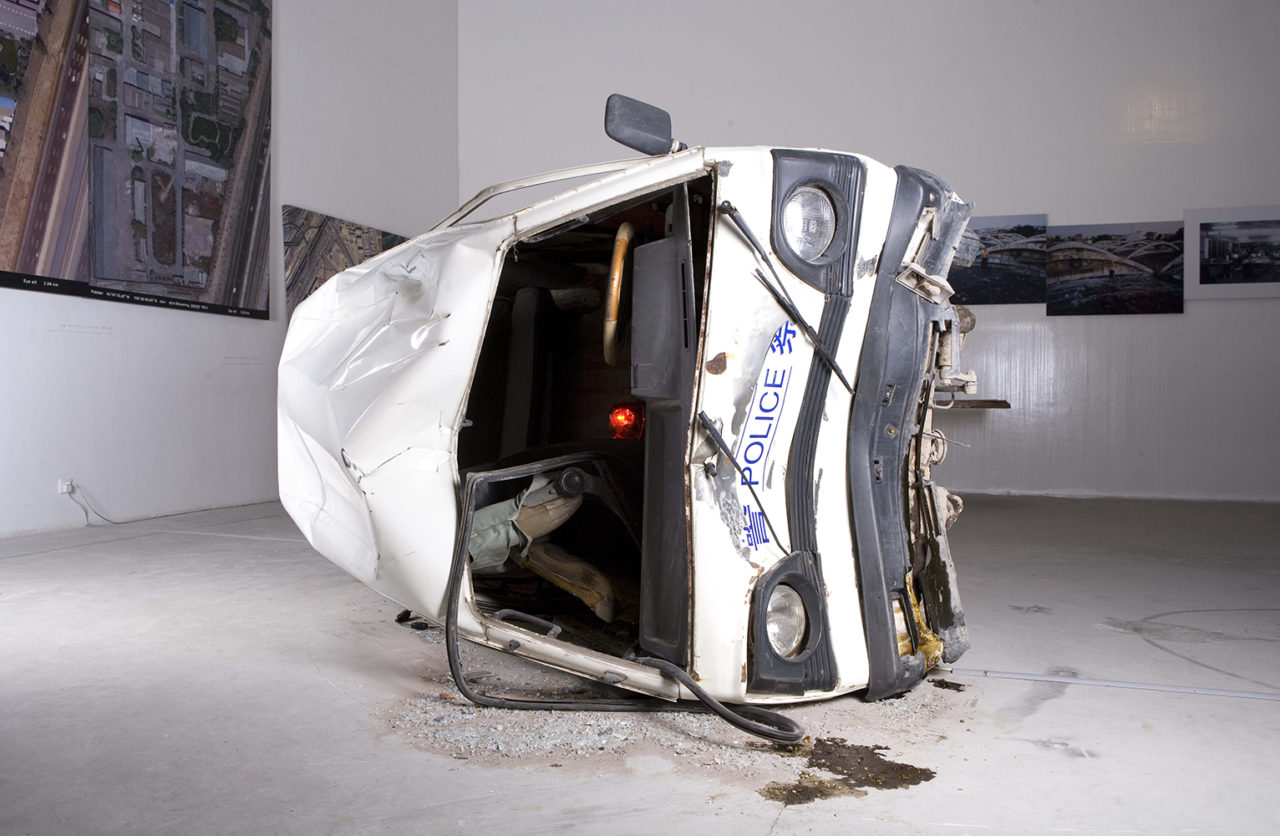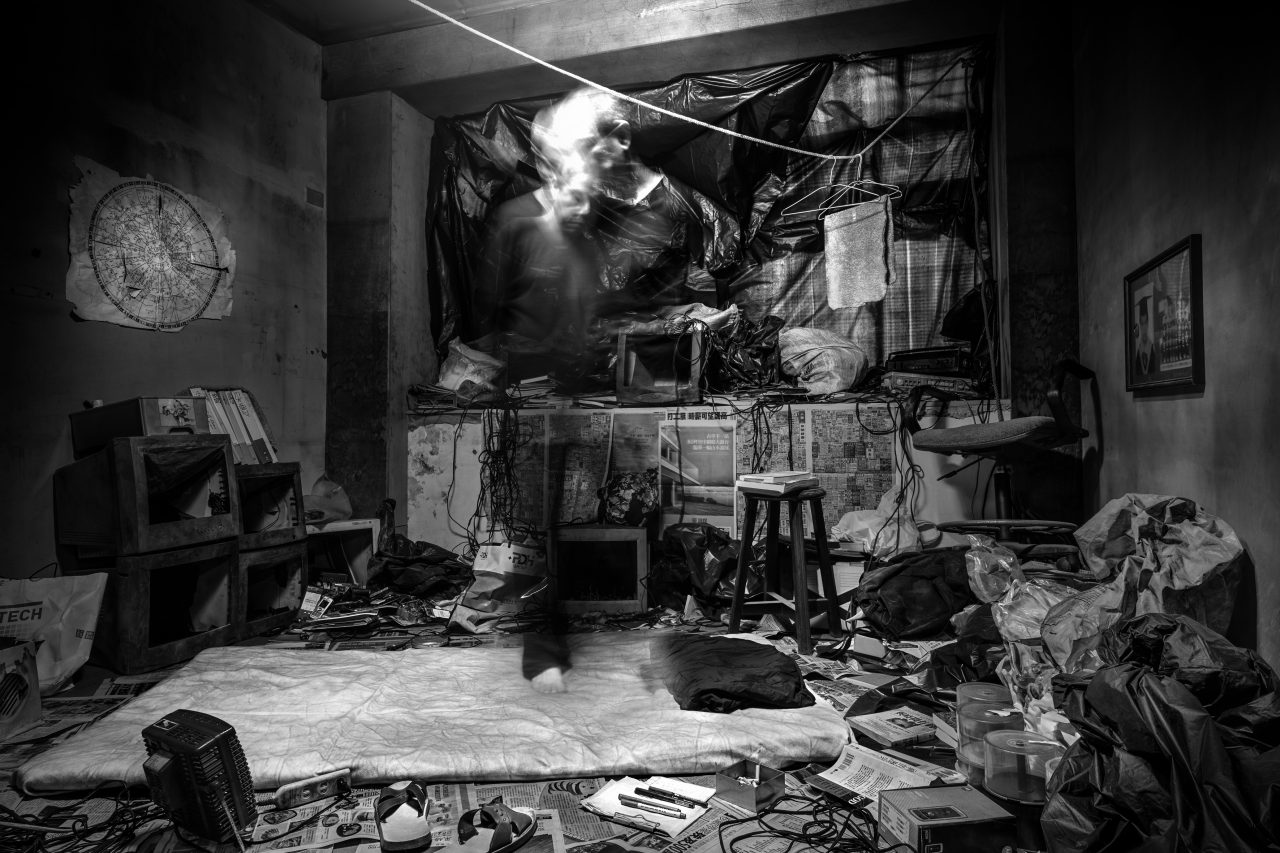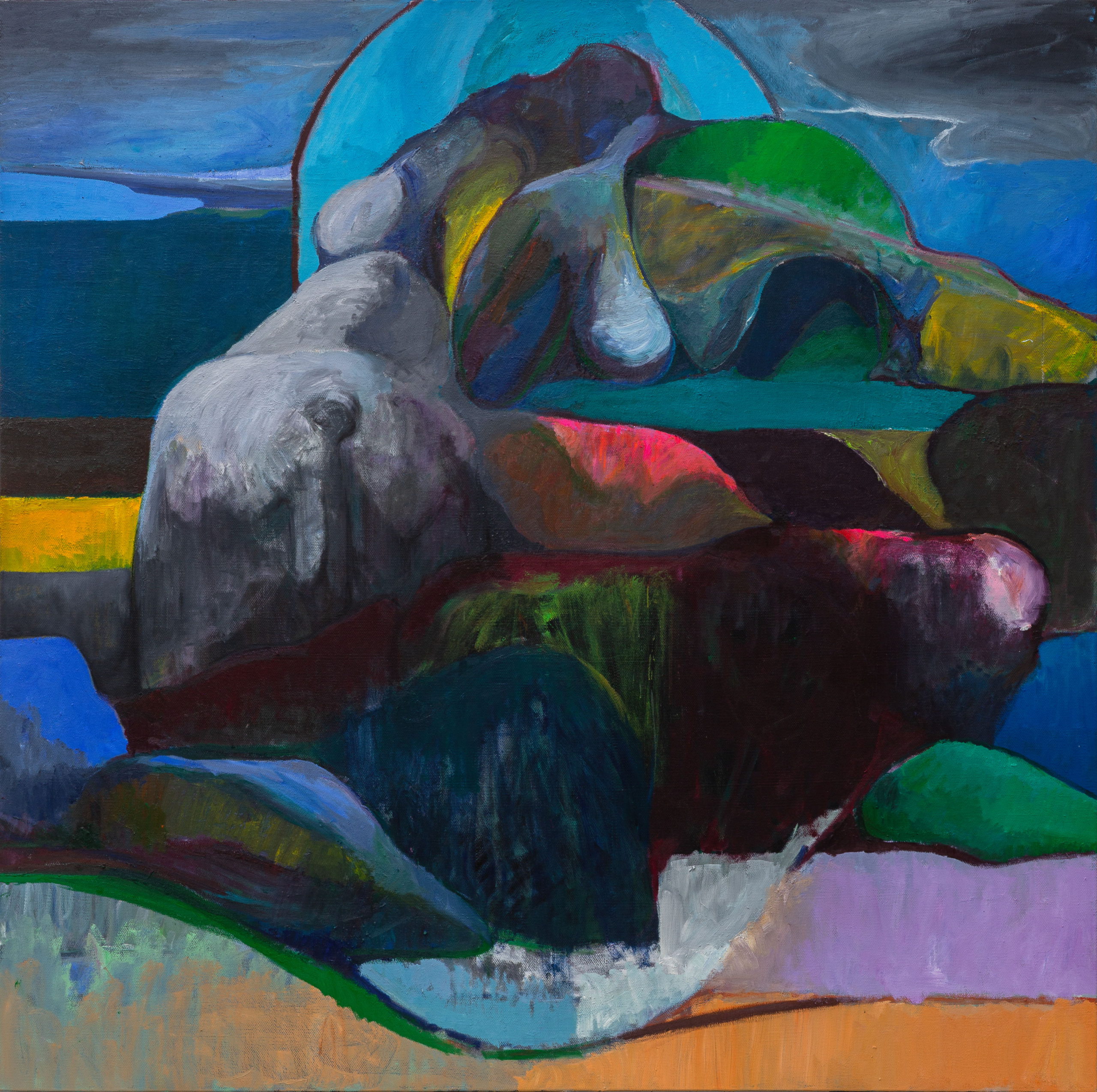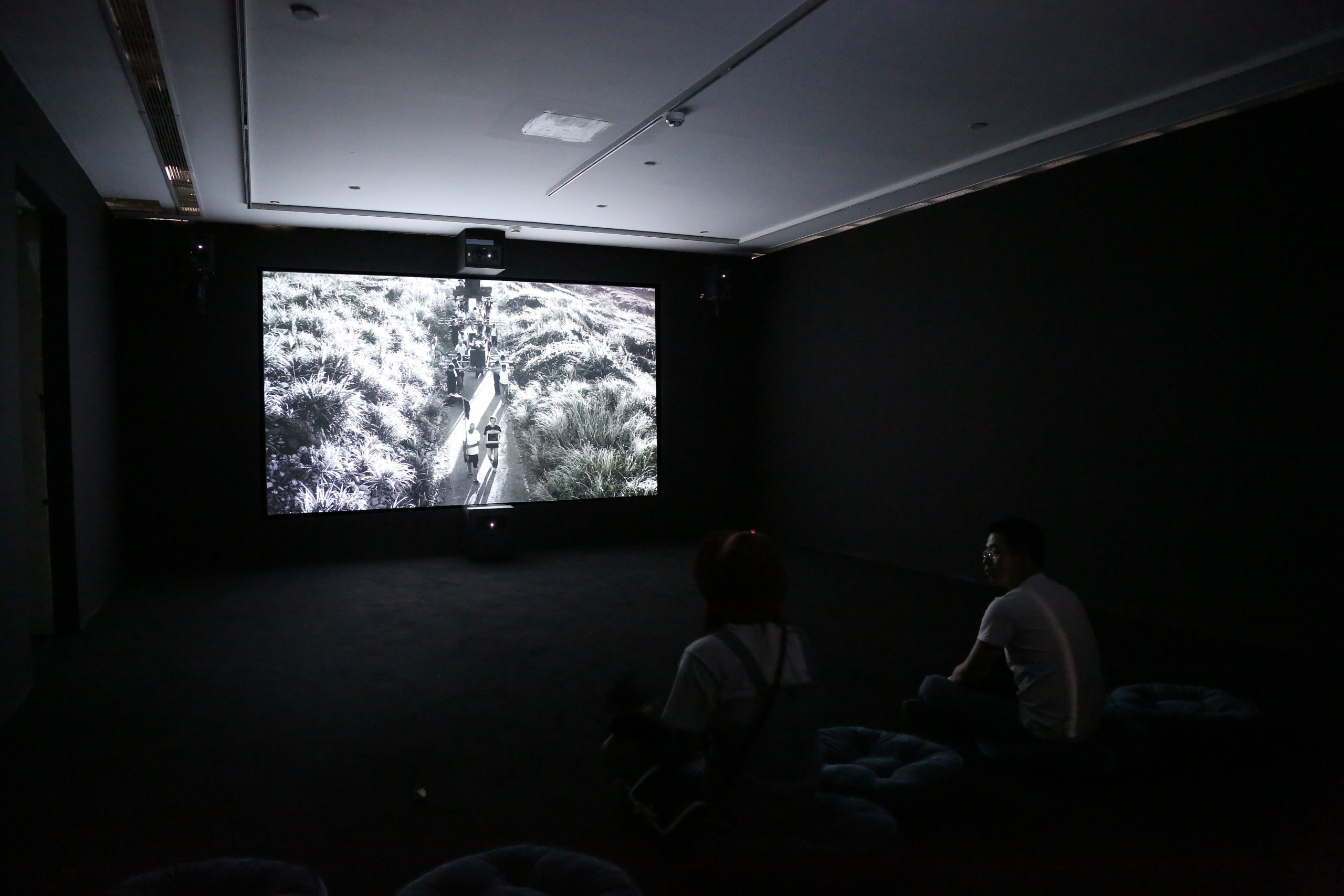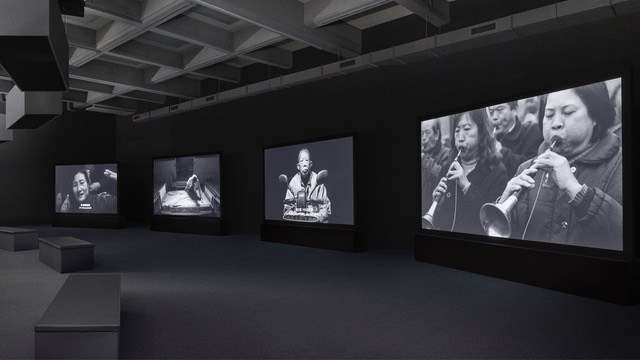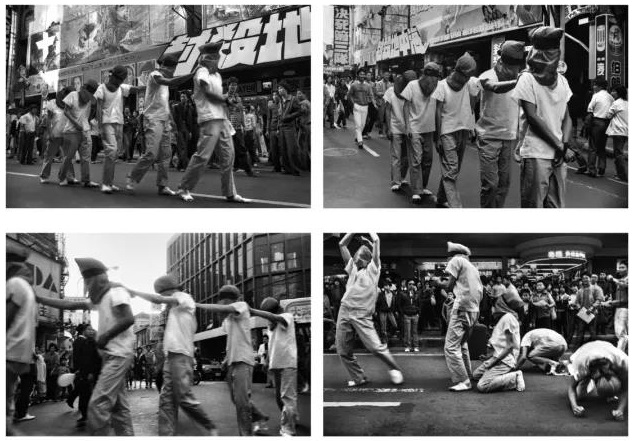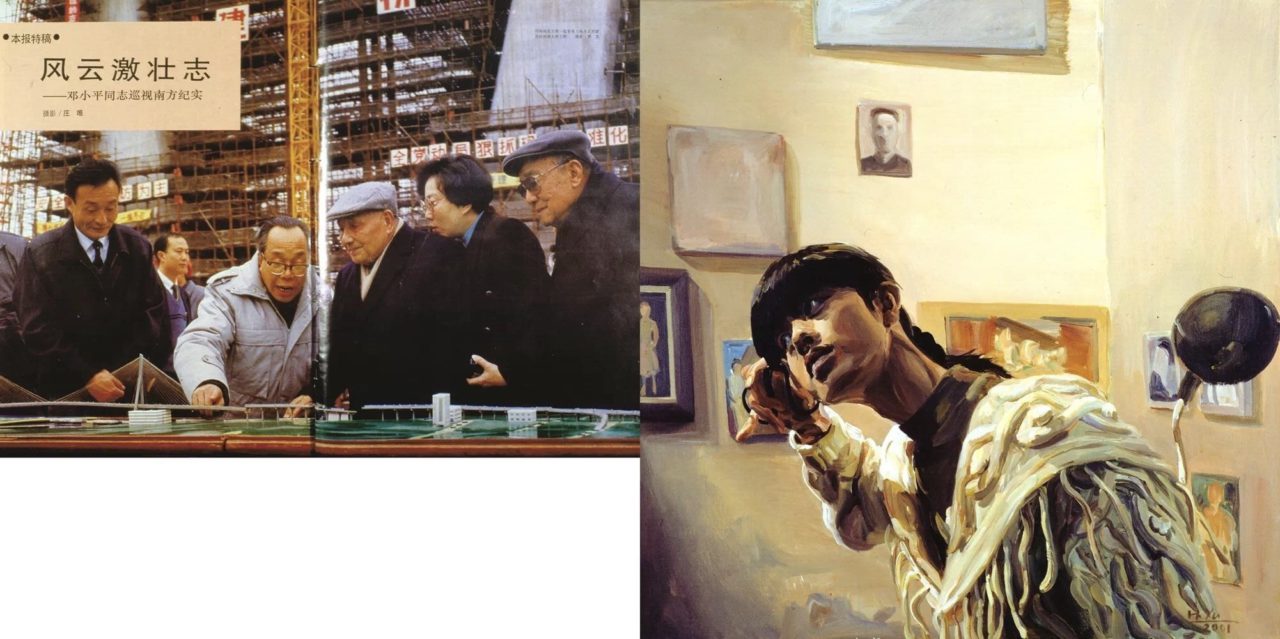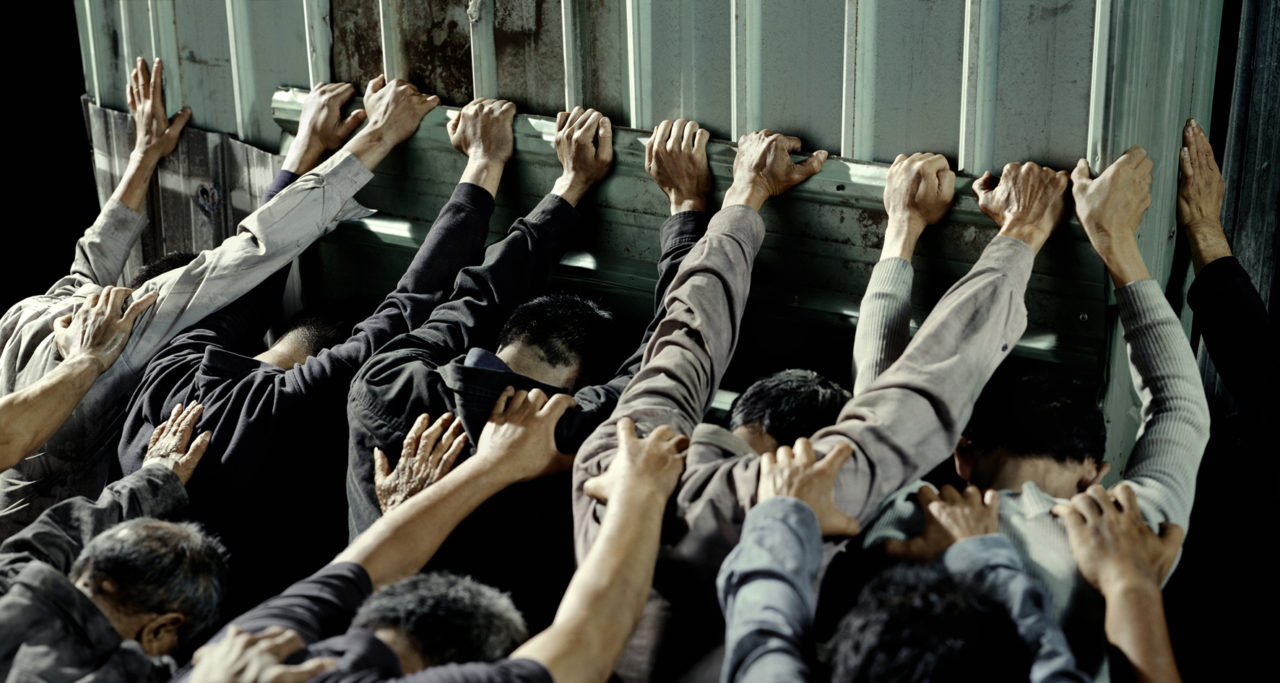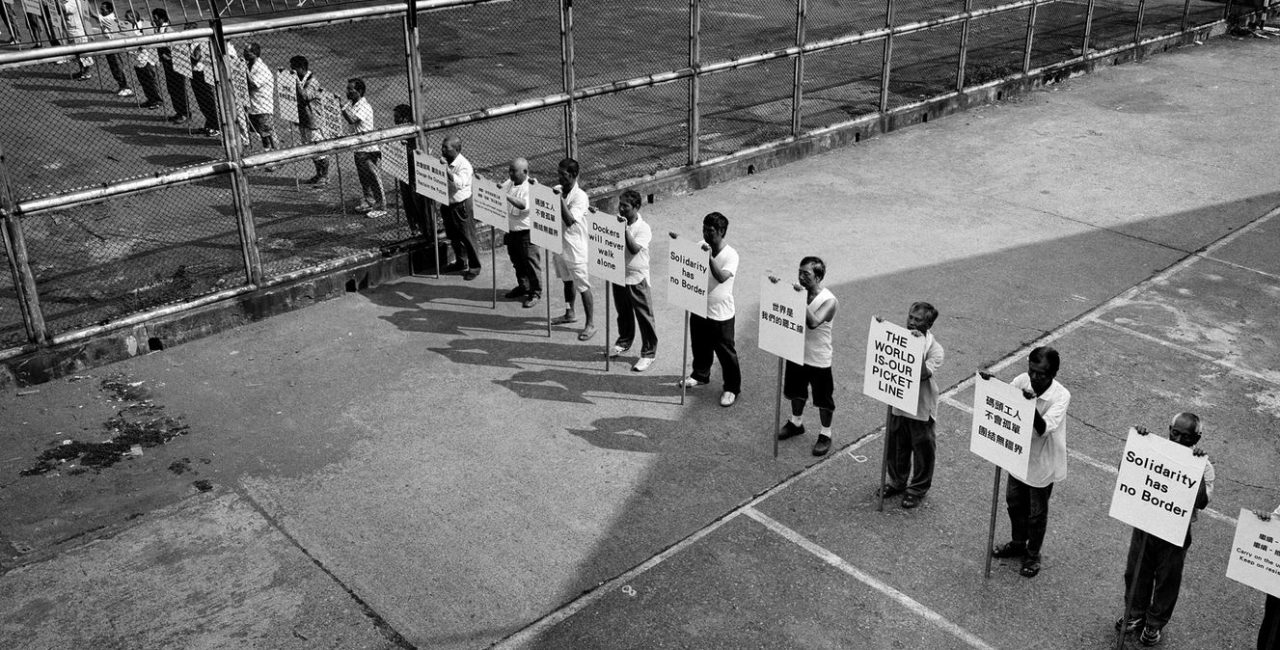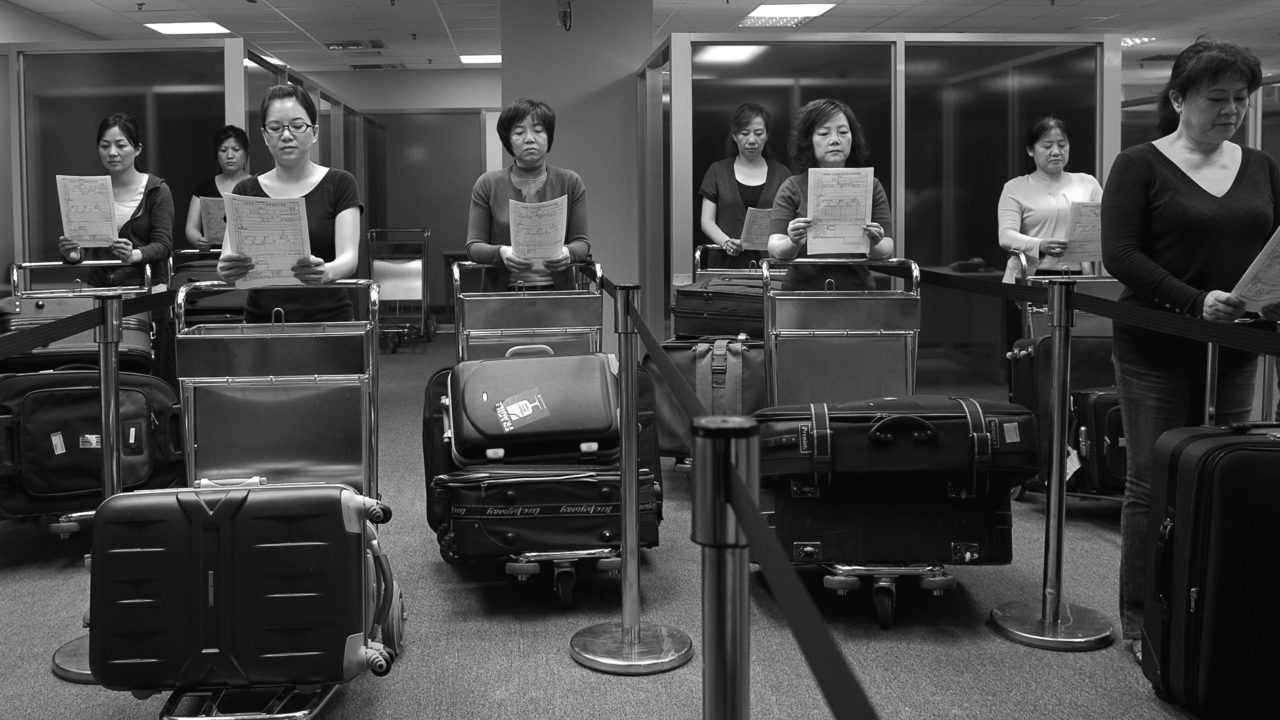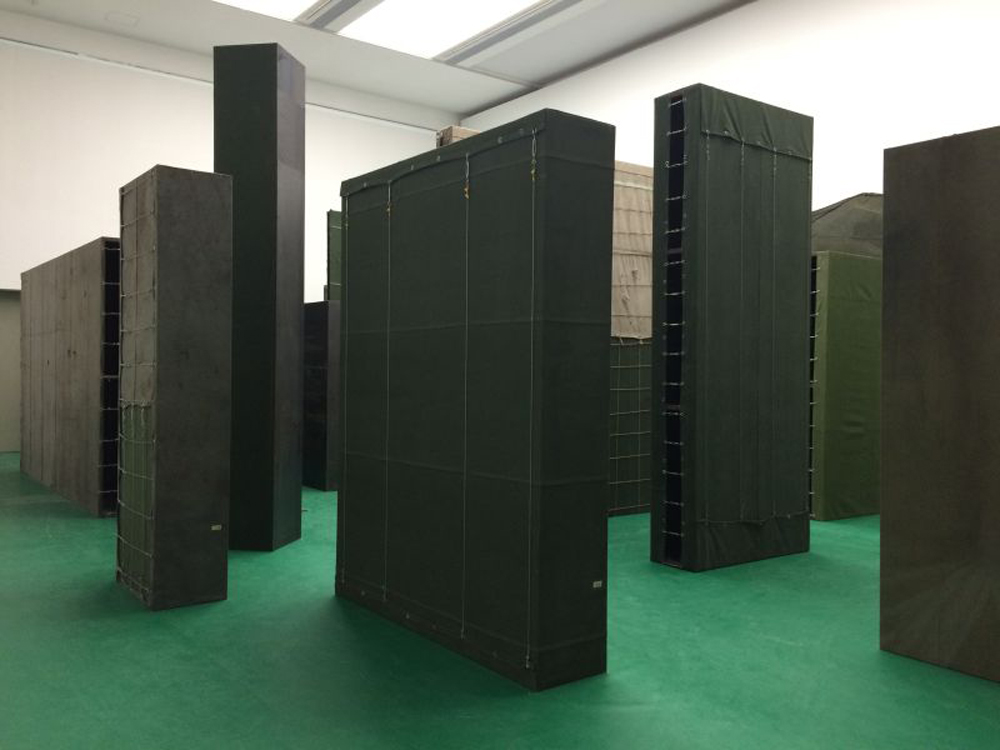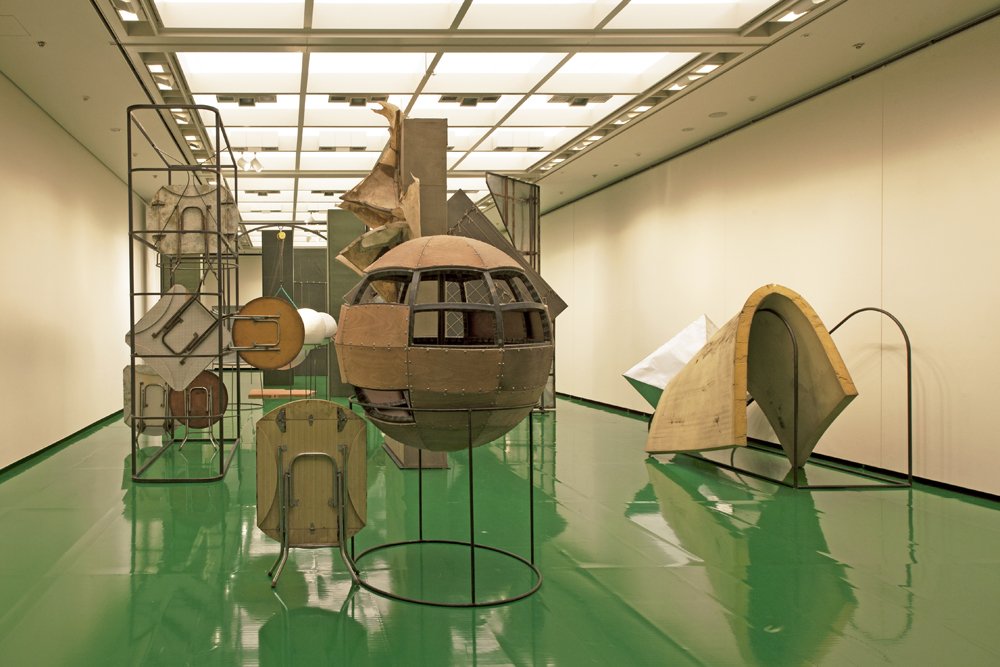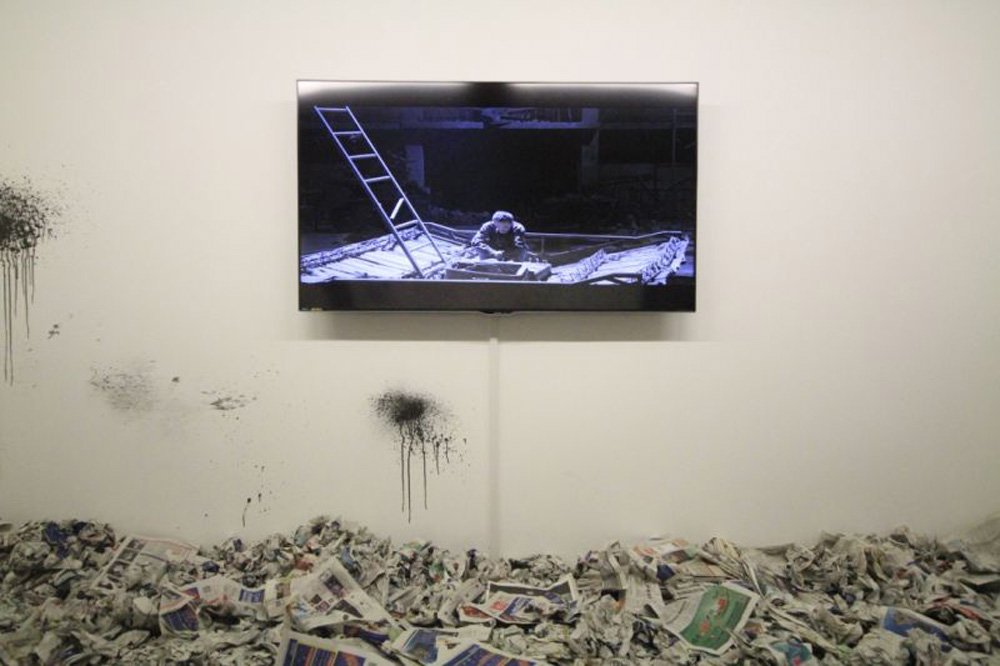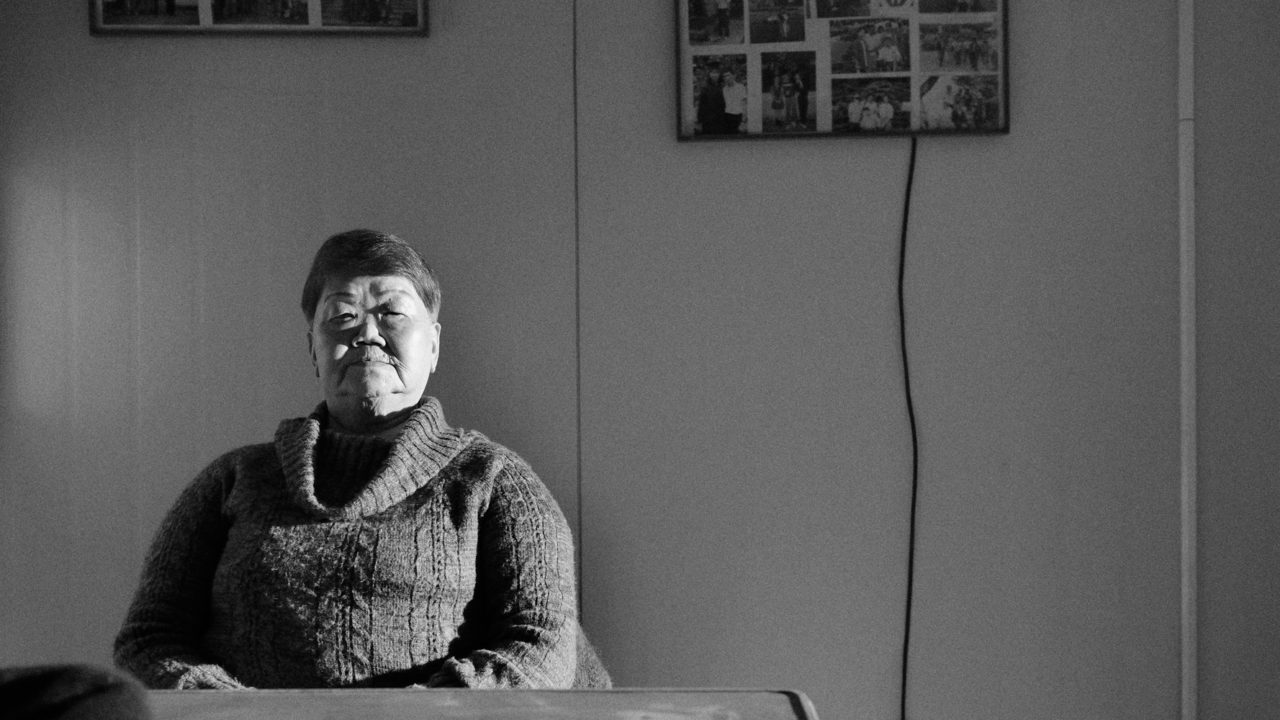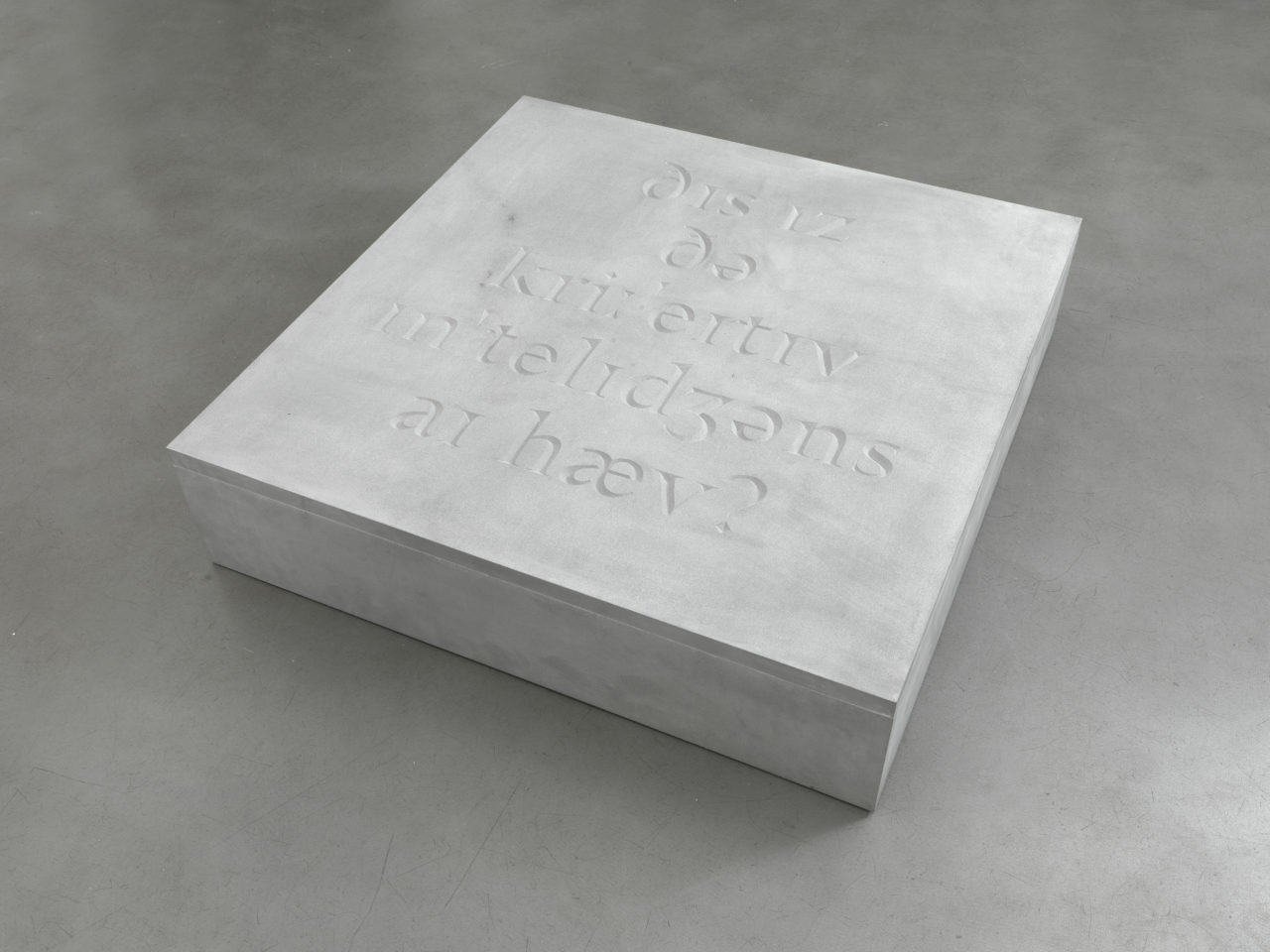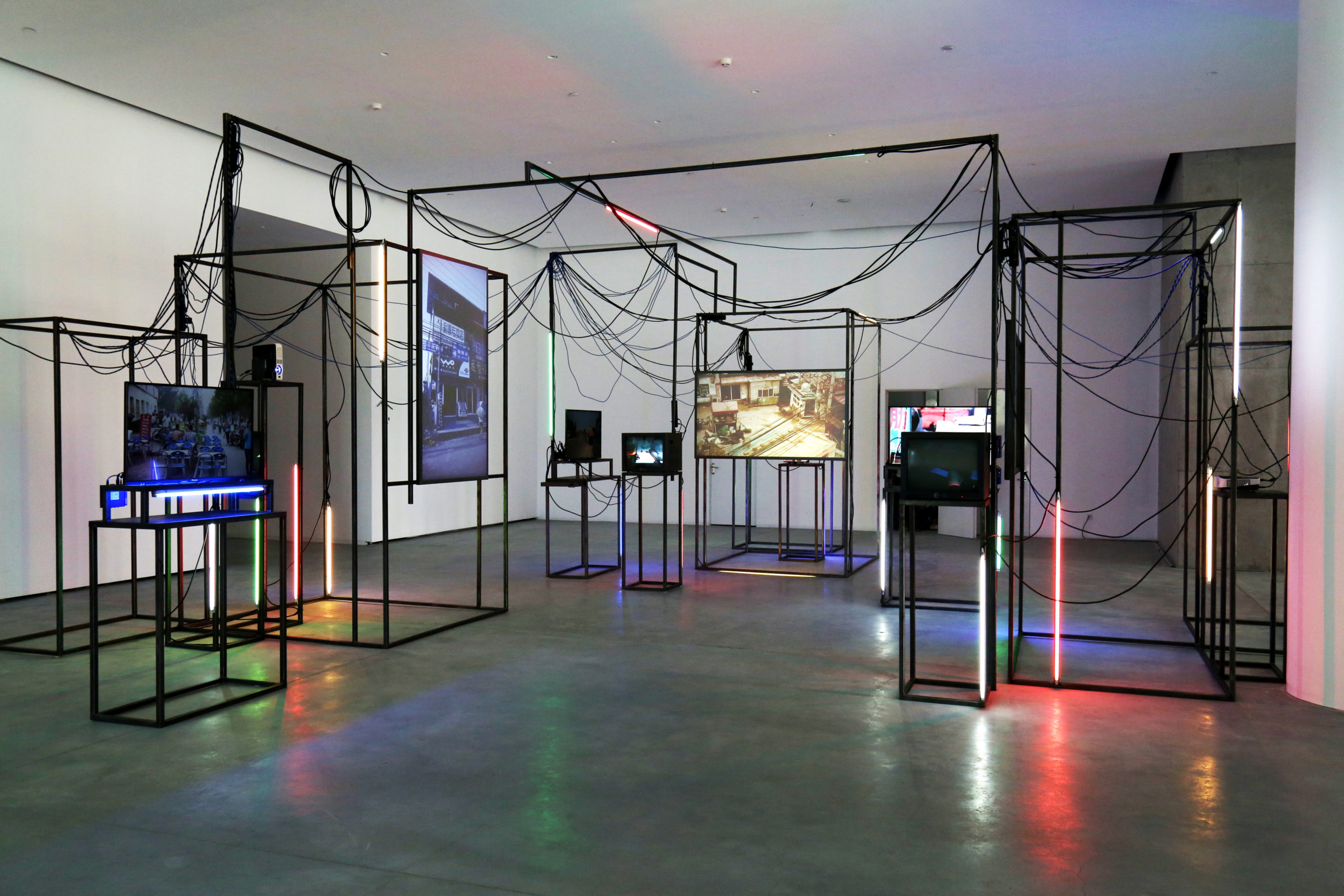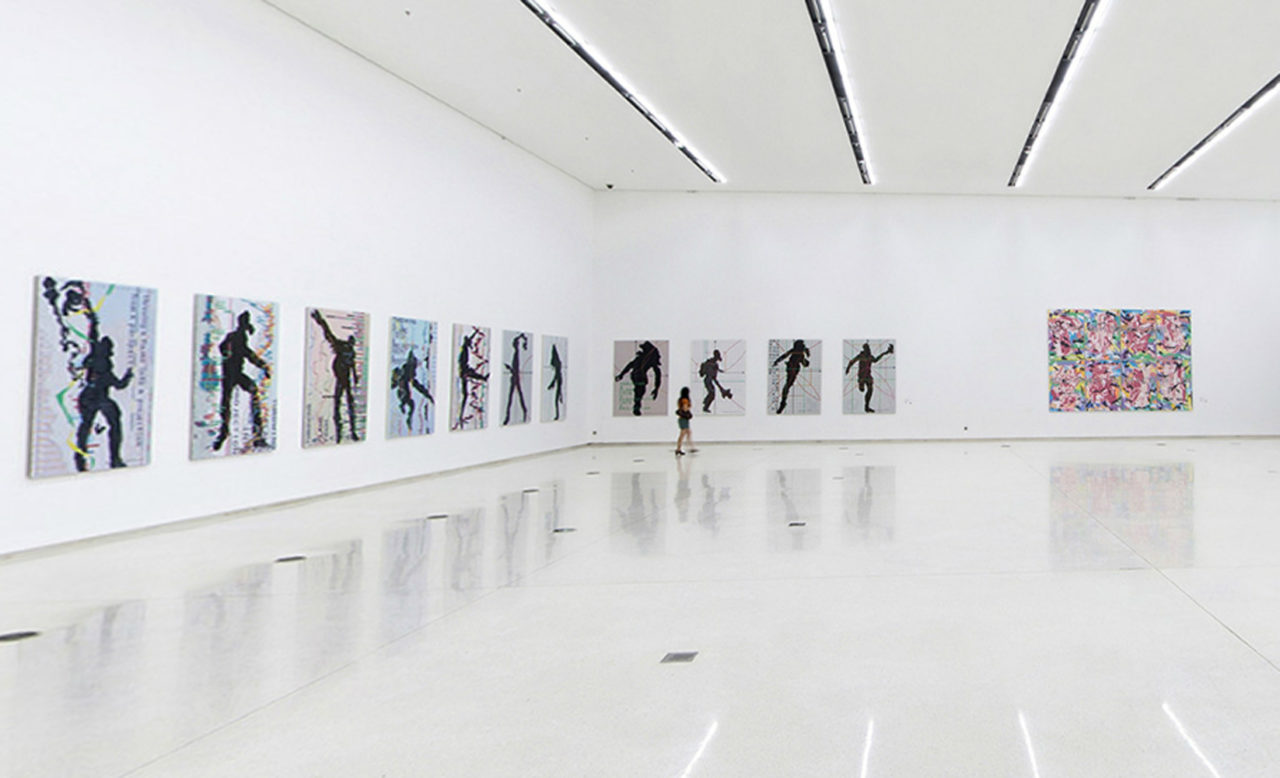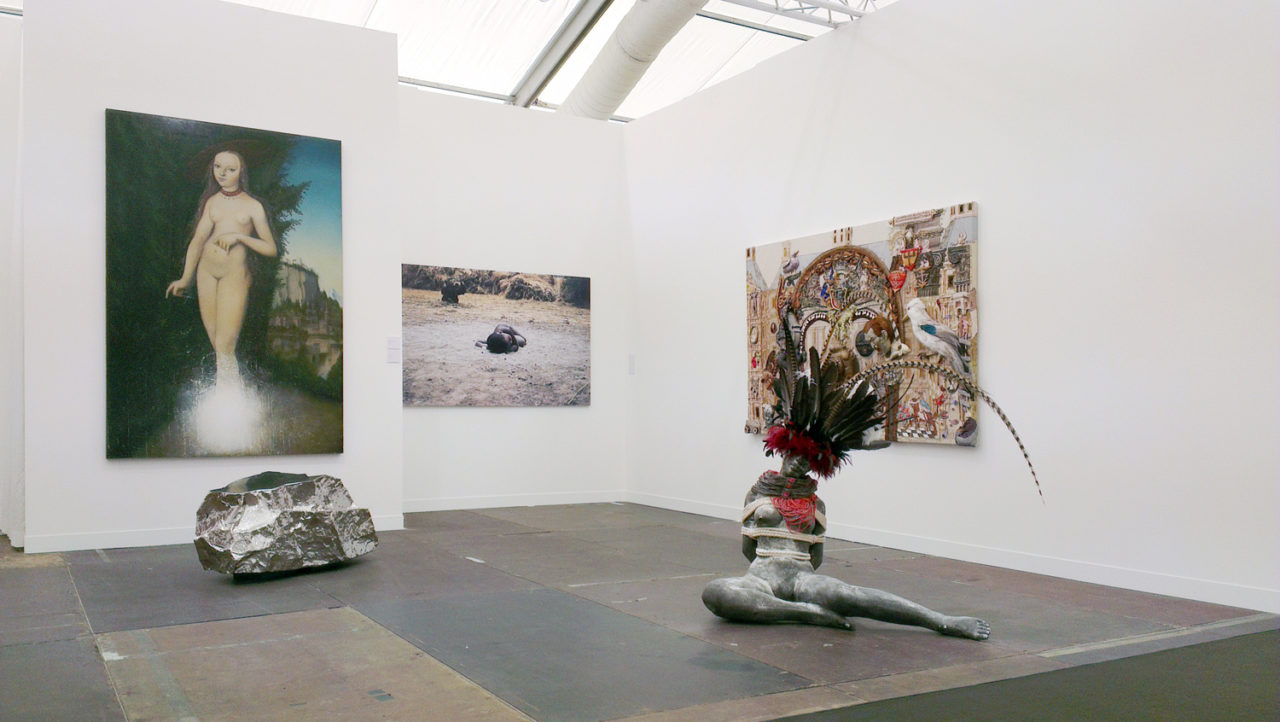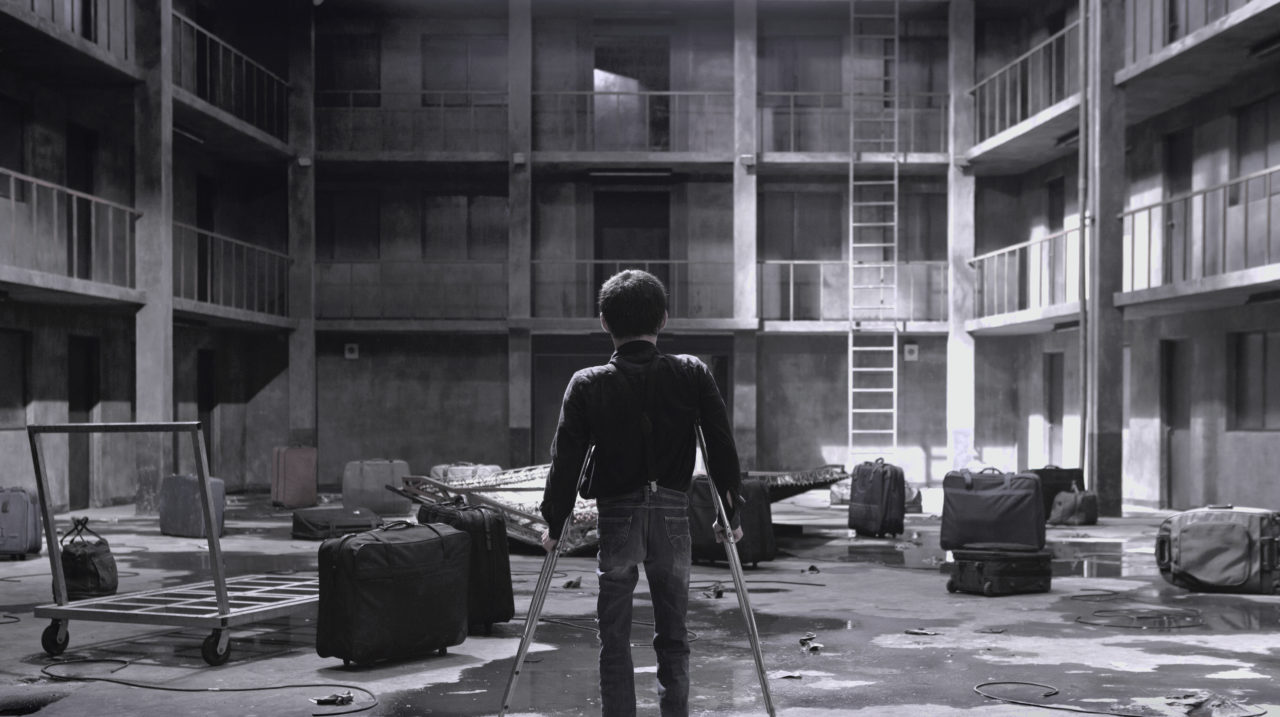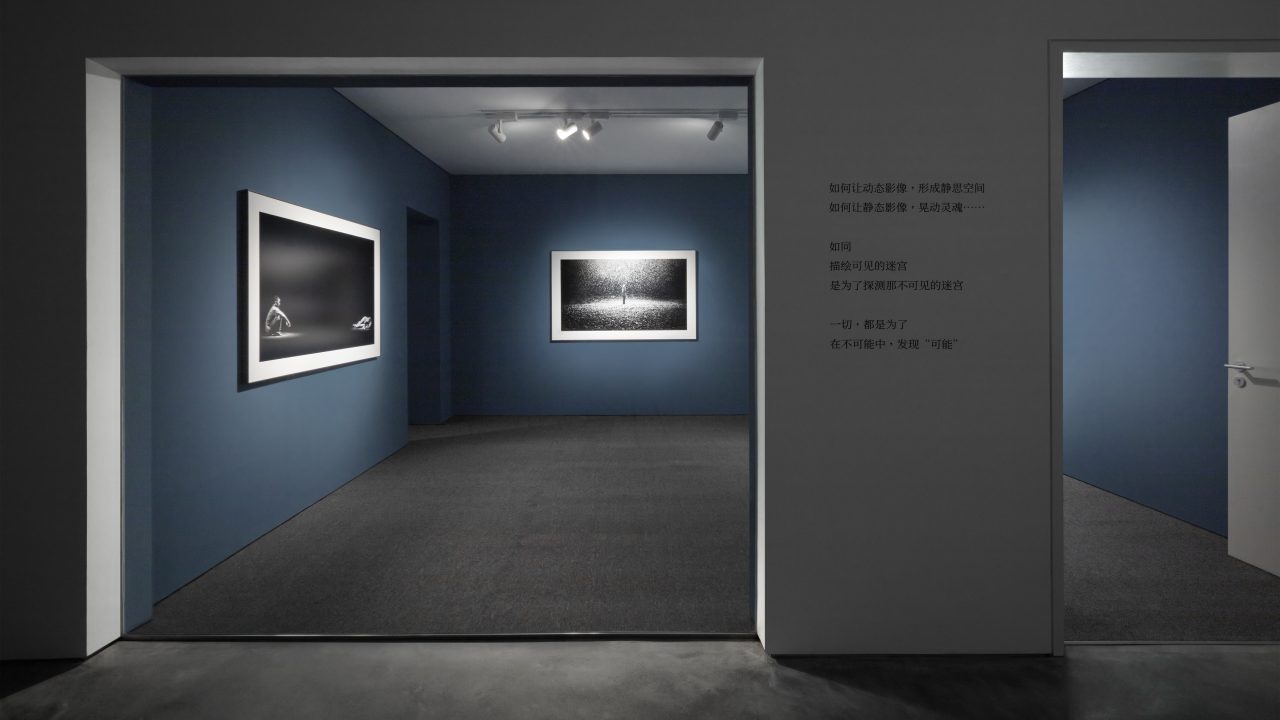-
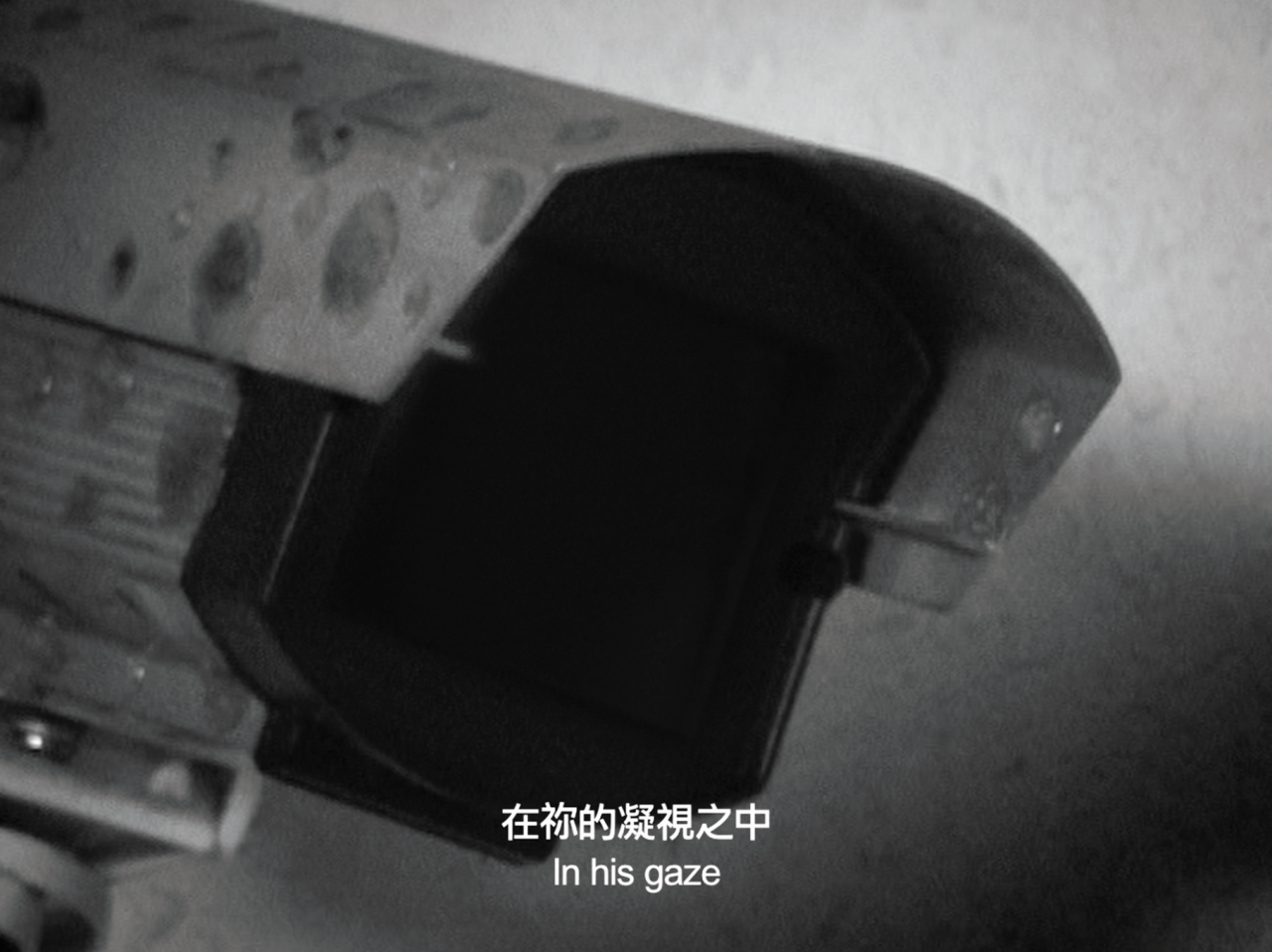
Notes on the Twelve Karmas
1999—2000/2018 Re-edited
DV transcoded to Blu-ray disc, b/w, single-channel
8’16”
-
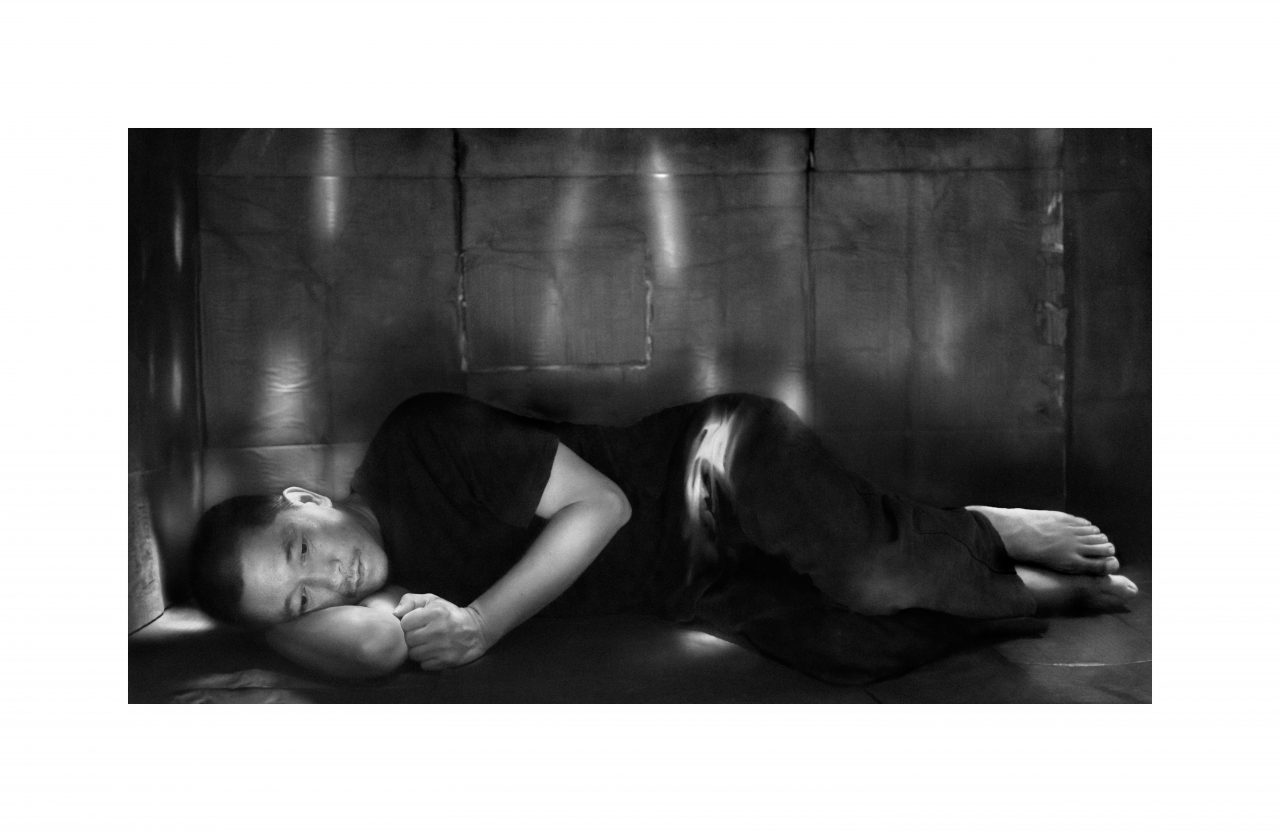
Worn Away—Waiting for Notification
2022–2023
B/w photograph, archival quality photo paper
Bordered: 65 × 100 cm -
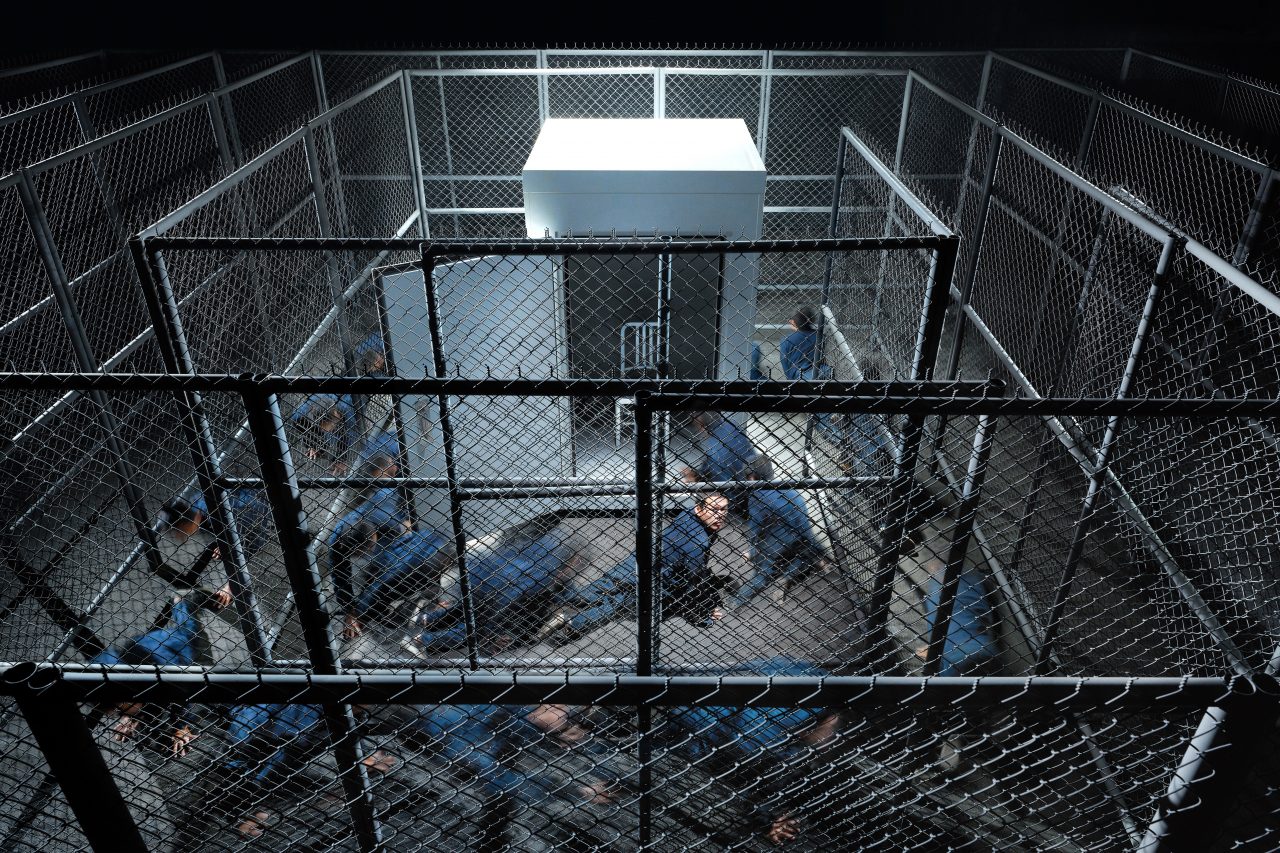
Worn Away—A Wide Open Labyrinth
2022–2023
Color photograph, archival quality photo paper
Image: 100 × 150 cm
Bordered: 120 × 170 cm -
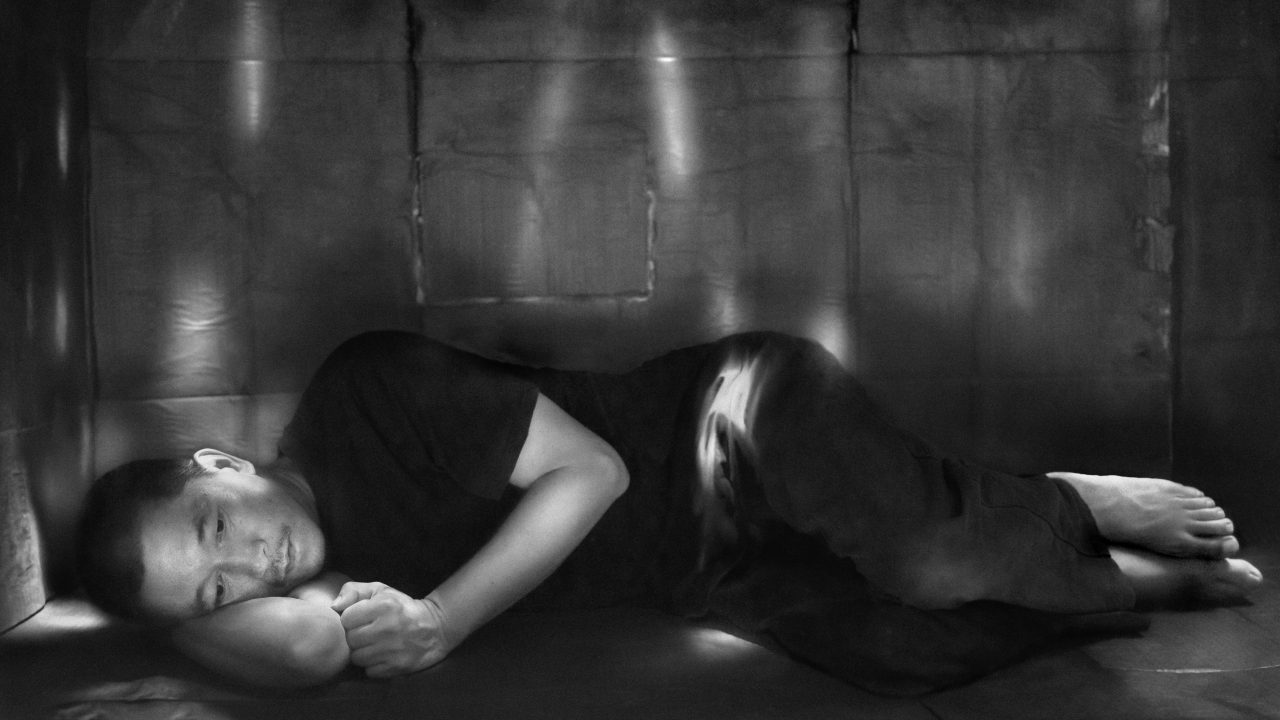
Worn Away
Video still
2022–2023
6K transcoded to 1080p, b/w and color, sound, single-channel
69’30” -
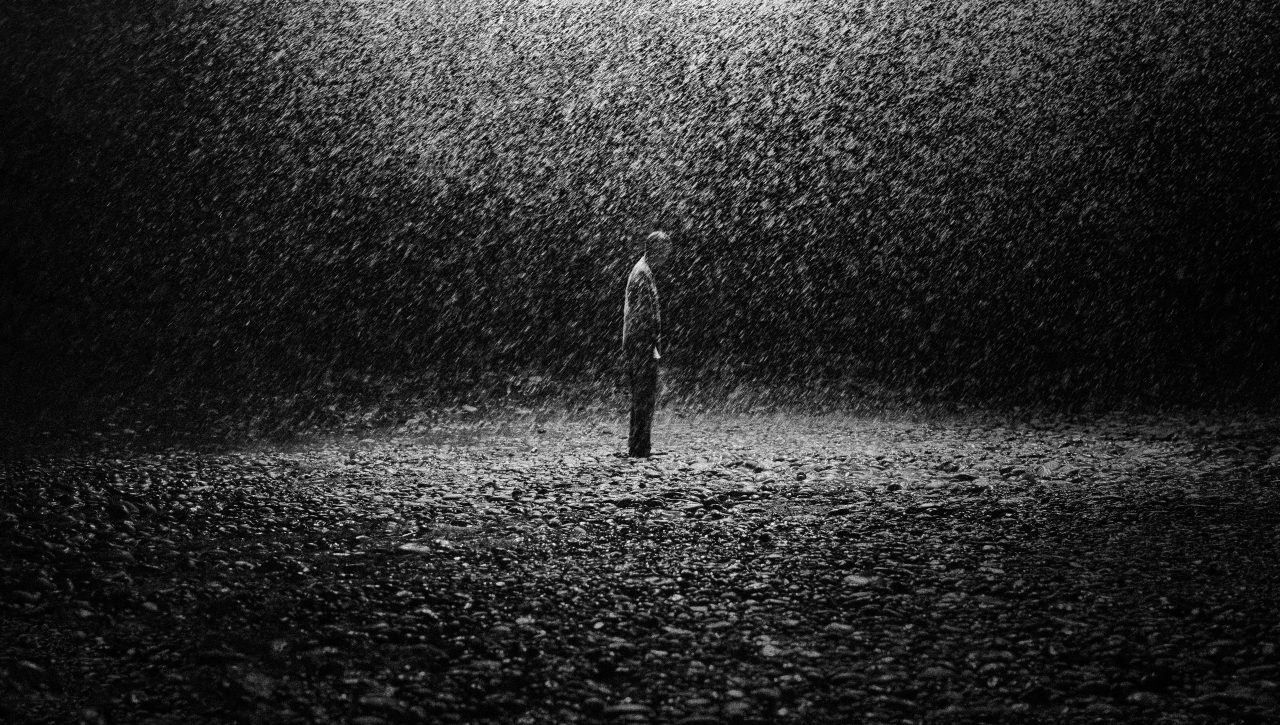
In a World Losing Multiple Worlds I
Video still
2022
6K transcoded to 1080p, b/w, sound, single-channel
4’08” -
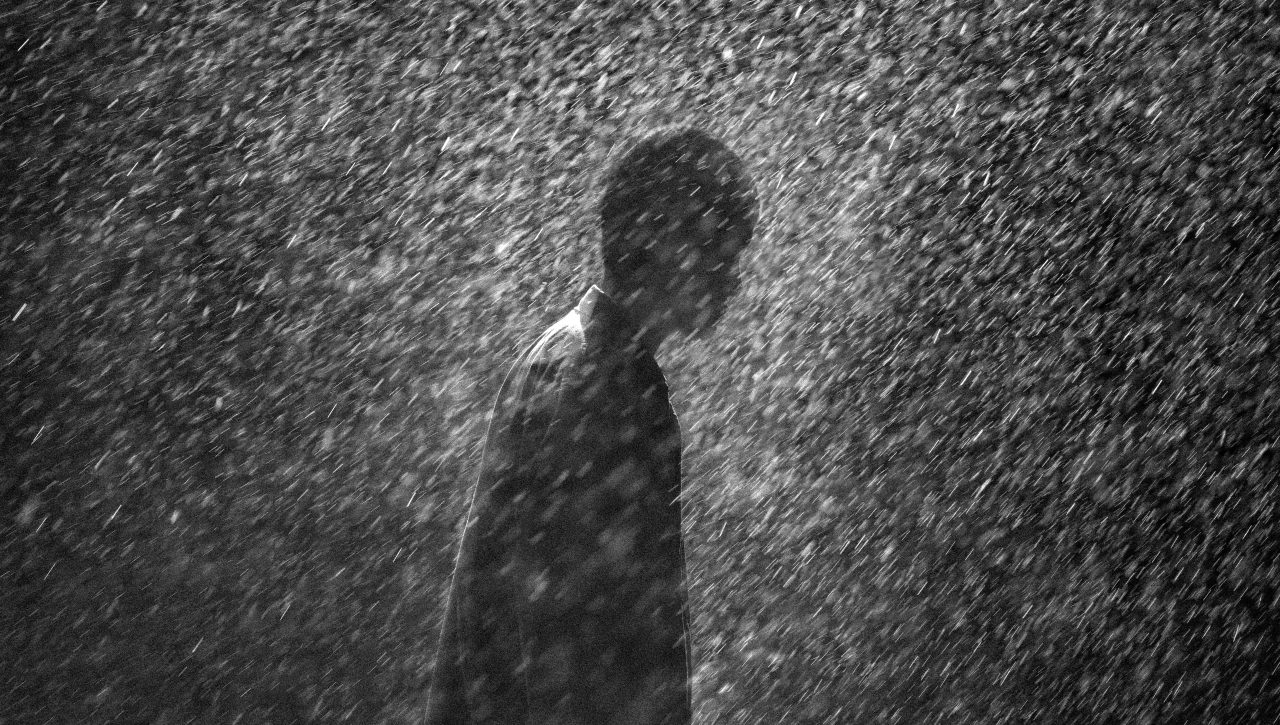
In a World Losing Multiple Worlds II
Video still
2022
6K transcoded to 1080p, b/w, sound, single-channel
2’38” -
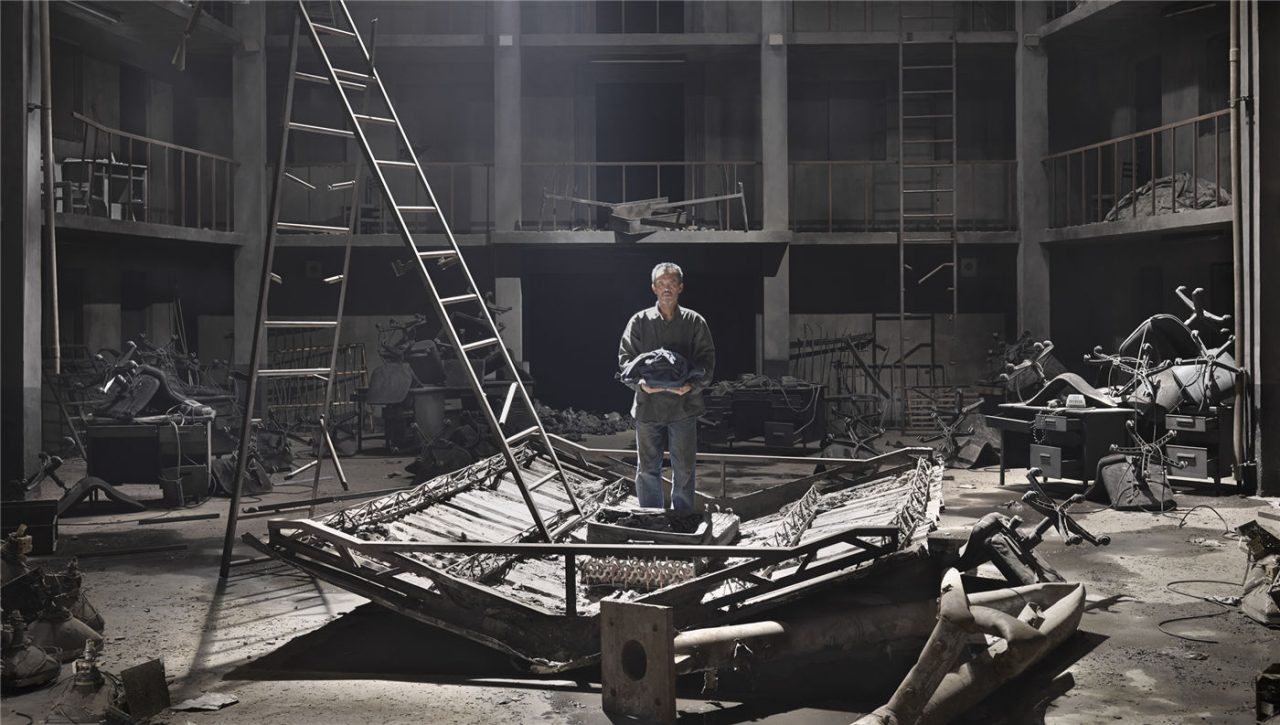
Friend Watan
Video still
2013
Single-channel video
36 minutes 47 seconds, on loop
-
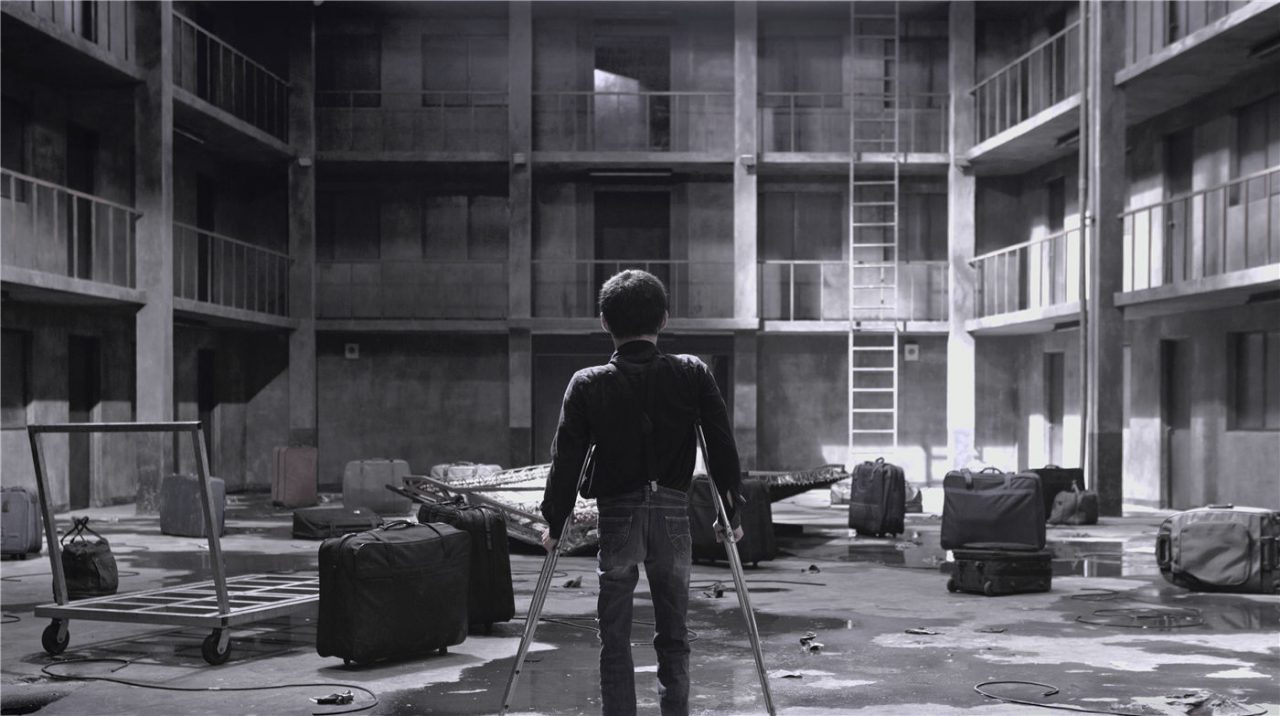
Happiness Building
Video still
2012
Multi-channel video, documentation, photos, artifacts
-
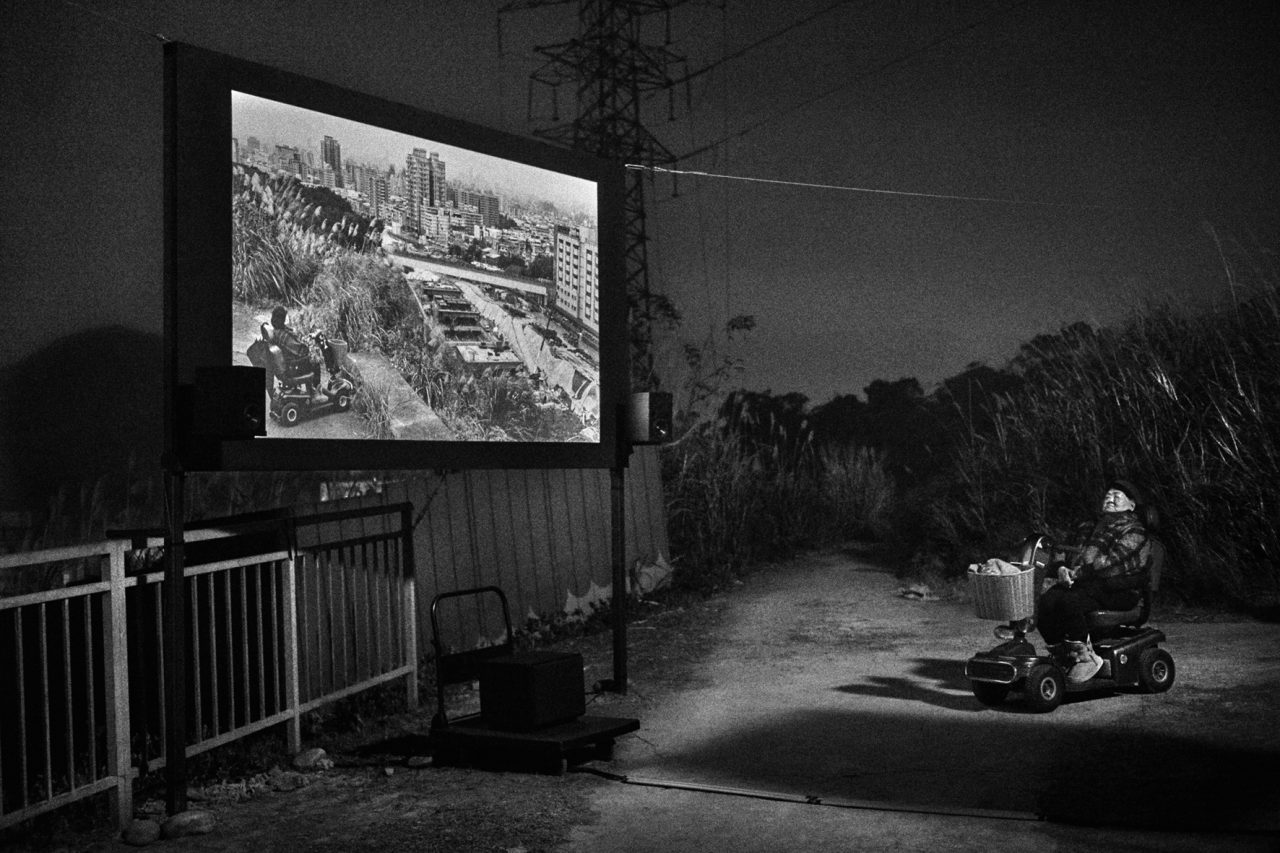
Wind Songs
Video still
2015
Single-channel video
23 minutes 17 seconds
-
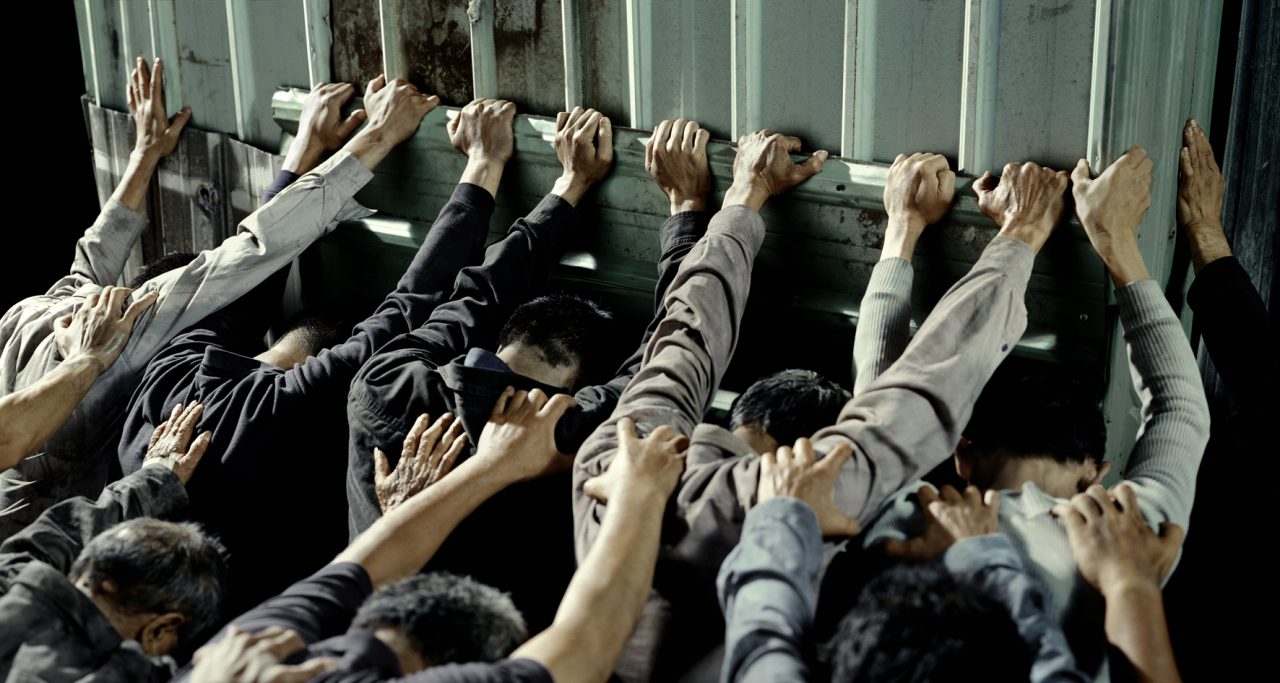
People Pushing
Video still
2007–2008
Single-channel video, sheet-metal structure
16 minutes 45 seconds, on loop
-
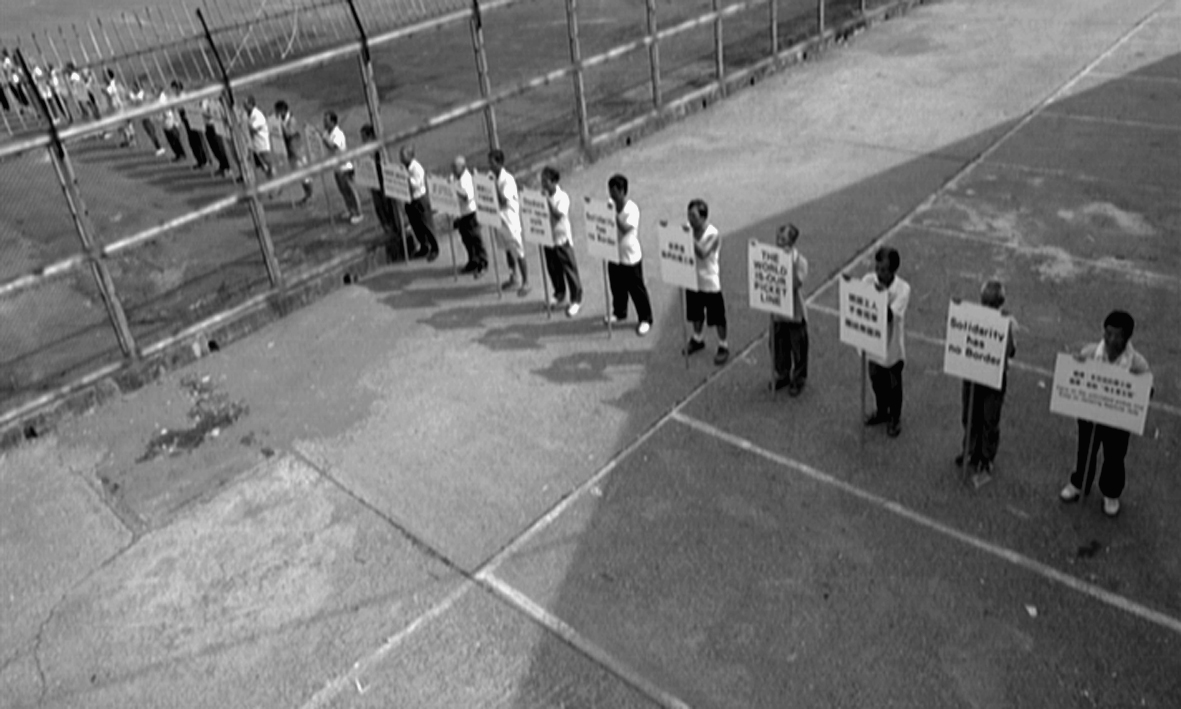
The Route
Video still
2006
Single-channel video
16 minutes 45 seconds, on loop
-
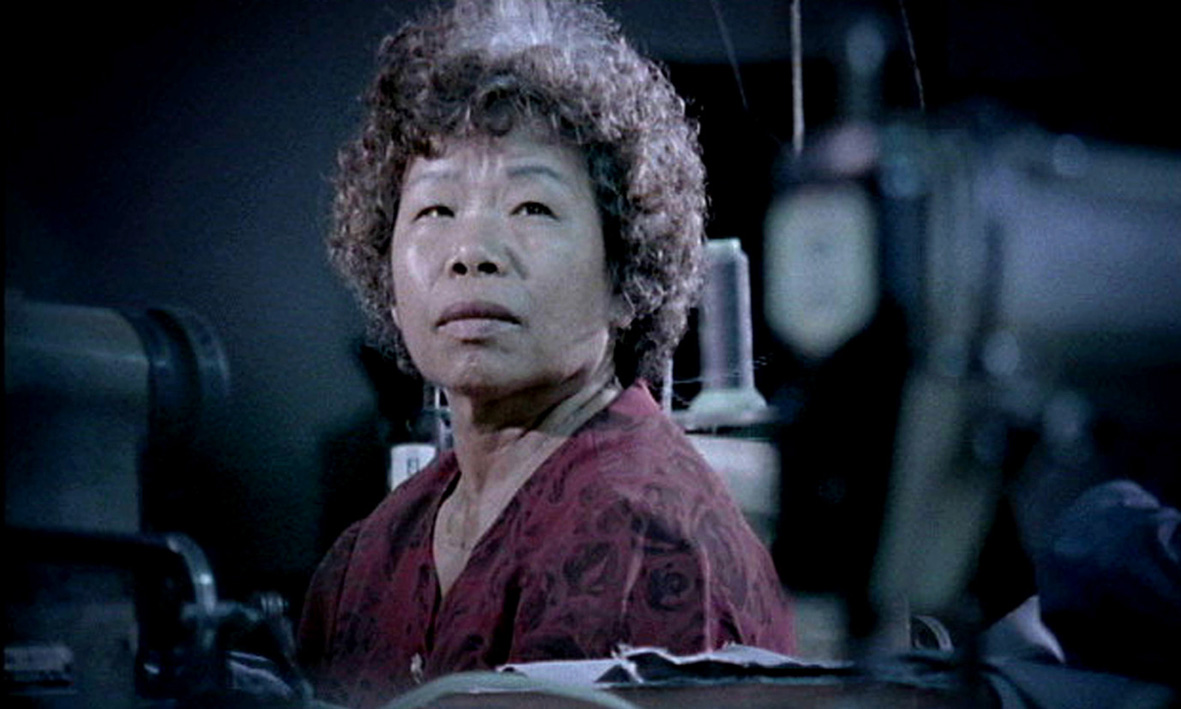
Factory
Video still
2003
Single-channel video
31 minutes 09 seconds, on loop
-
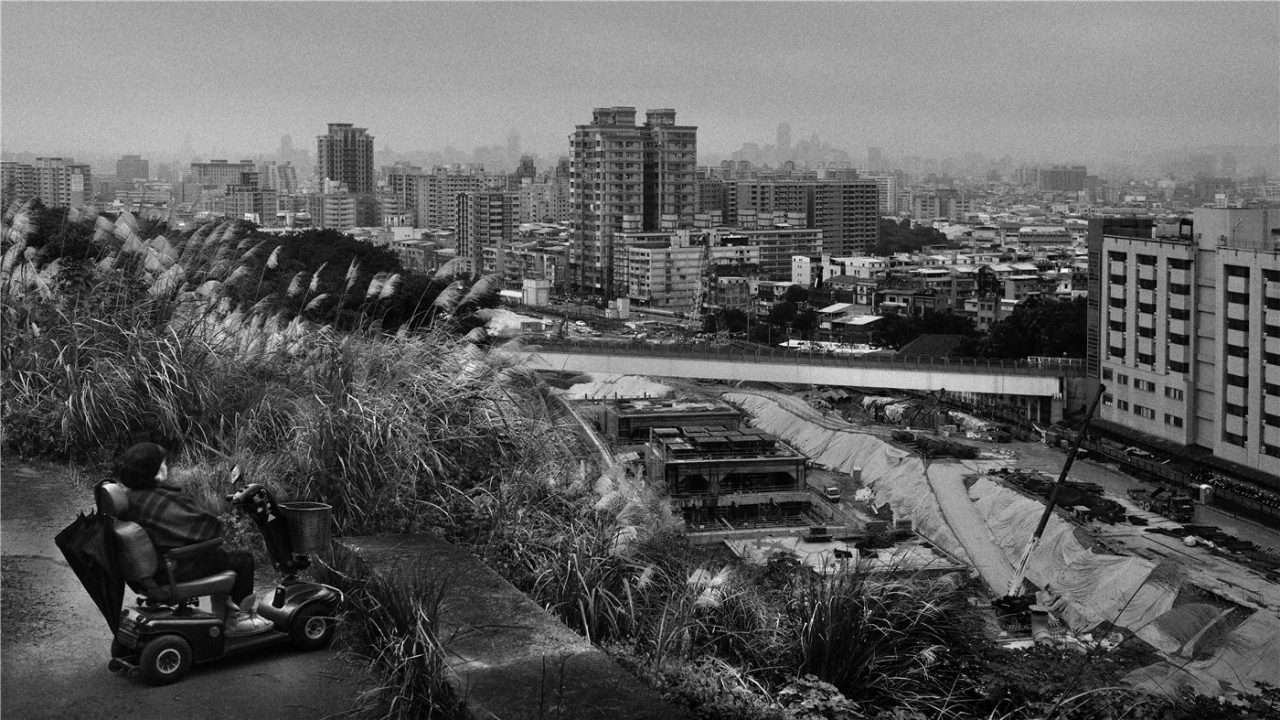
Realm of Reverberations
Video still
2014
Four-channel video
About 23 minutes for each, on loop
-
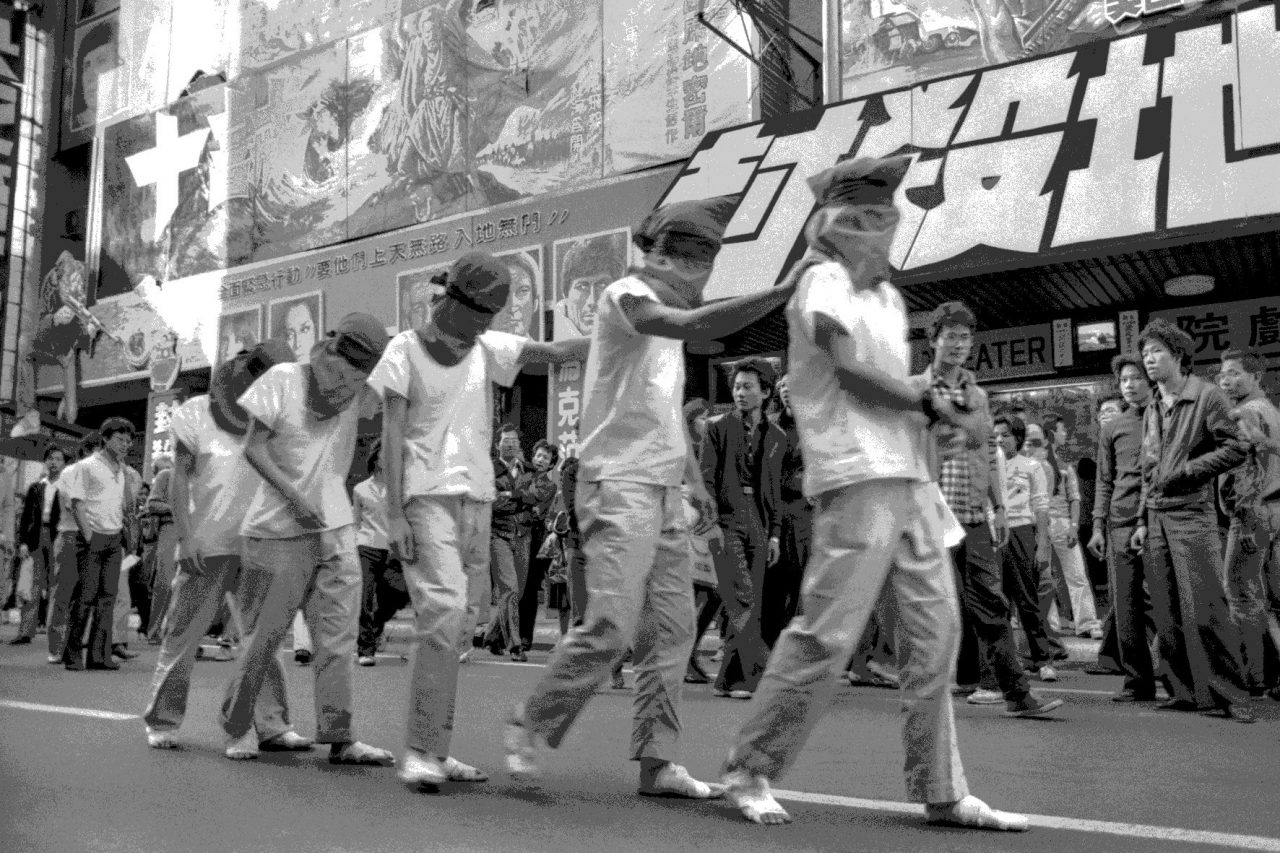
Dysfunction No. 3
Video still
1983
Single-channel video
Approximately 8 minutes, on loop
-
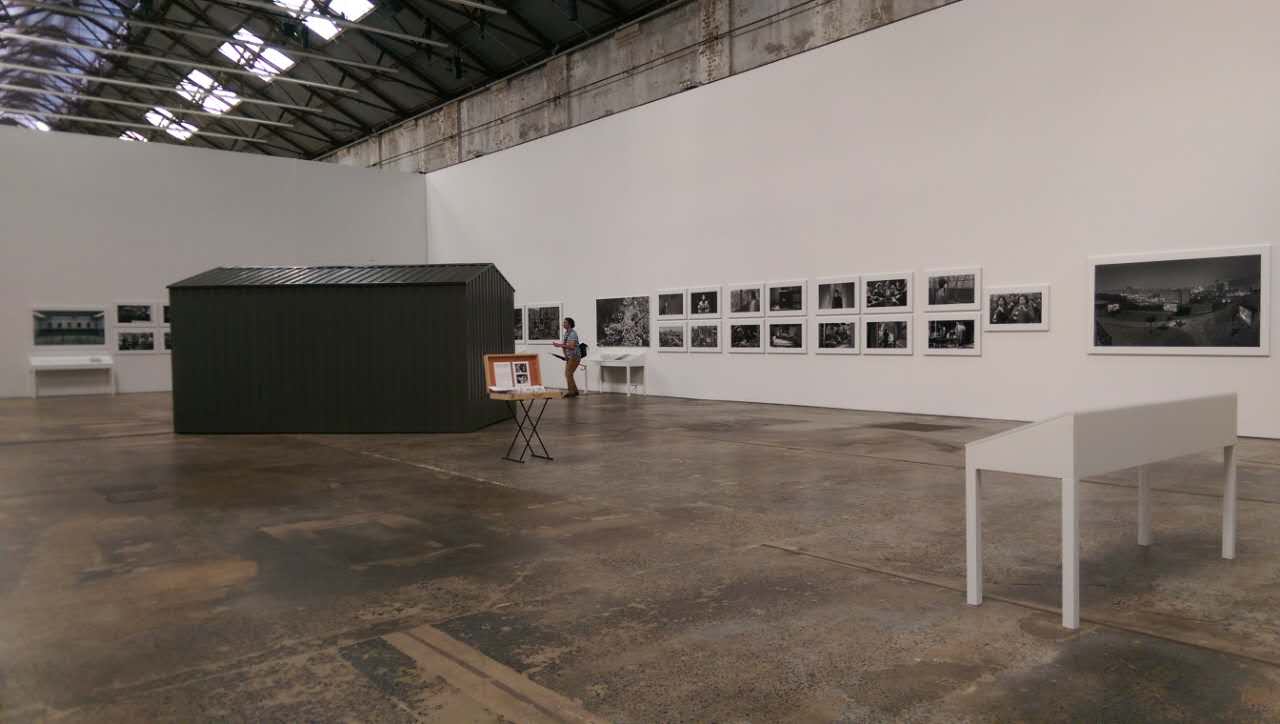
The Bianwen Book I
2002–2014
Mixed media installation
Installation view of Biennale of Sydney: The future is already here – it’s just not evenly distributed, 2016, Sydney, Australia
-
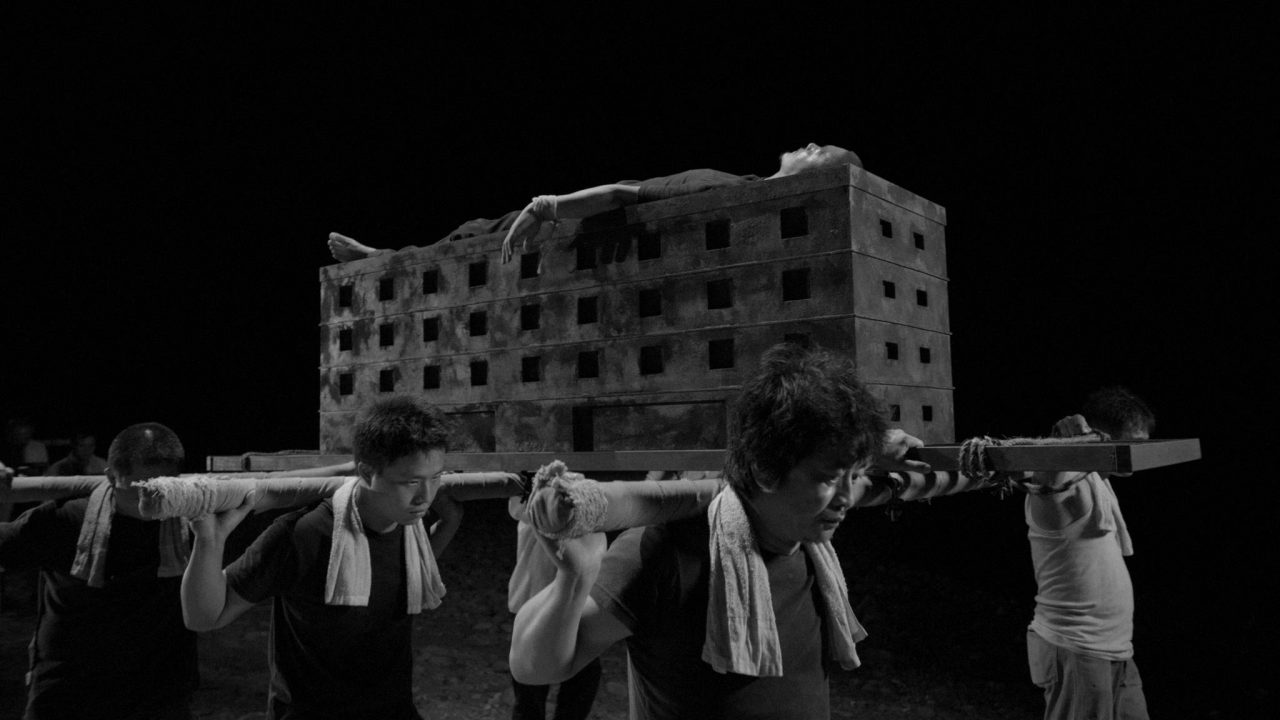
A Field of Non-field
Vedio still
2017
Single-channel video
61 minutes 07 seconds, on loop
-
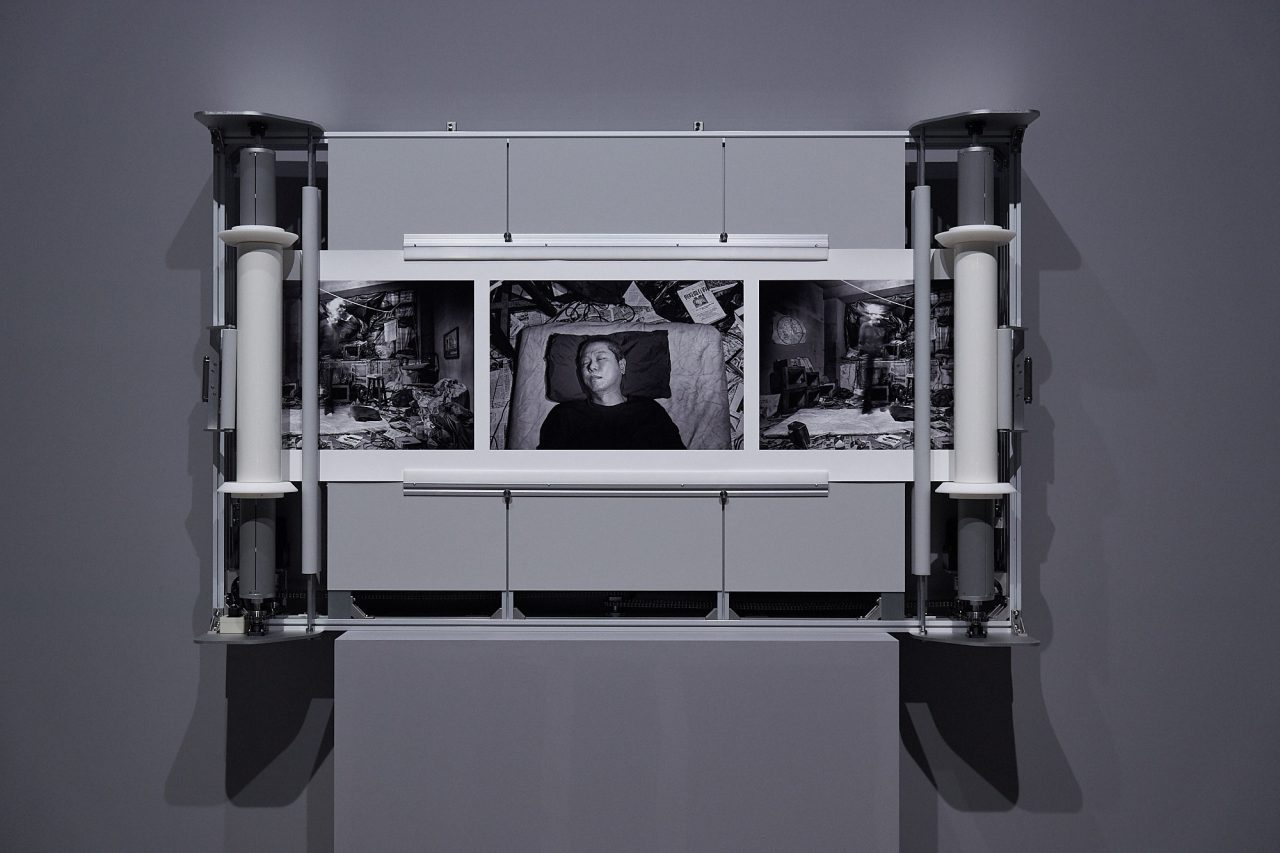
Star Chart
2017
Black and white photo paper, mechanical scrollbar
210 × 131 × 31 cm
-
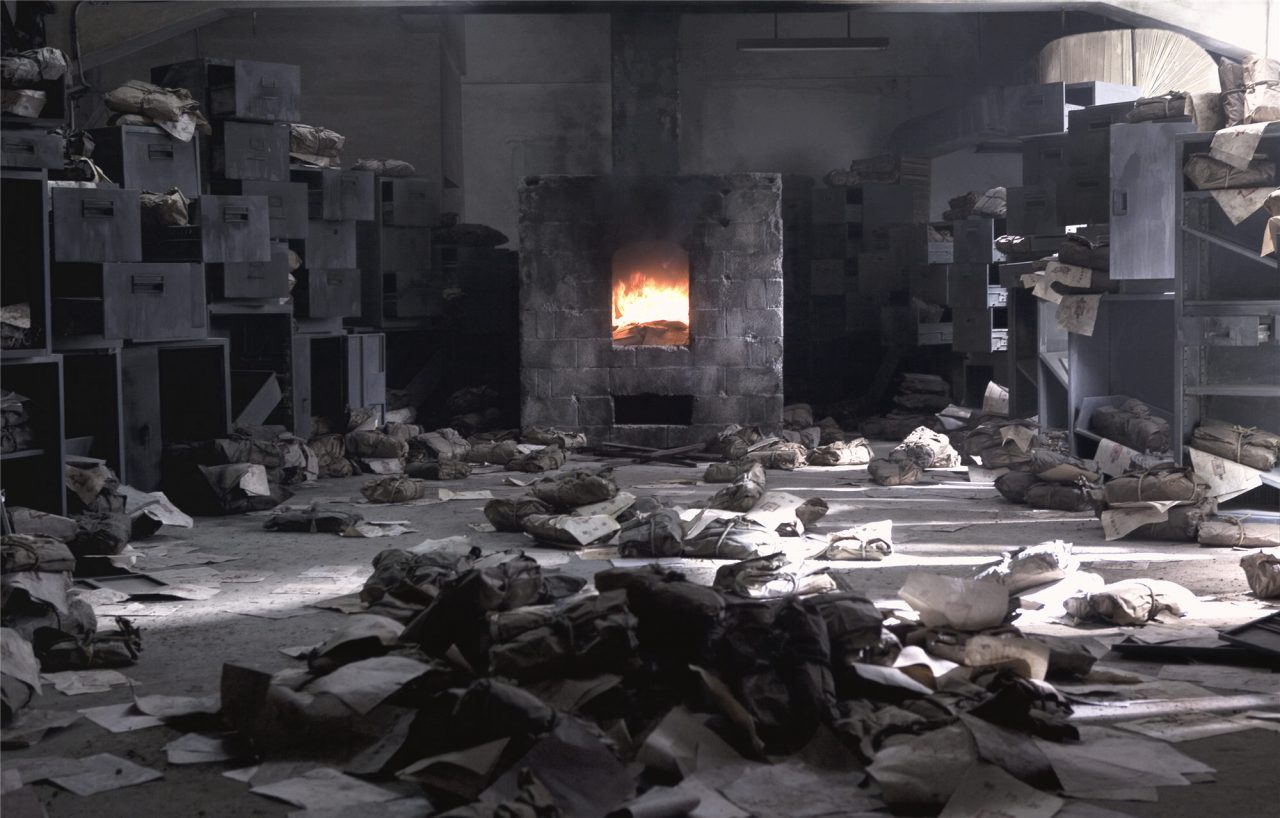
Empire’s Borders II– Western Enterprises, Inc.
Video still
2010
Three-channel video installation
-
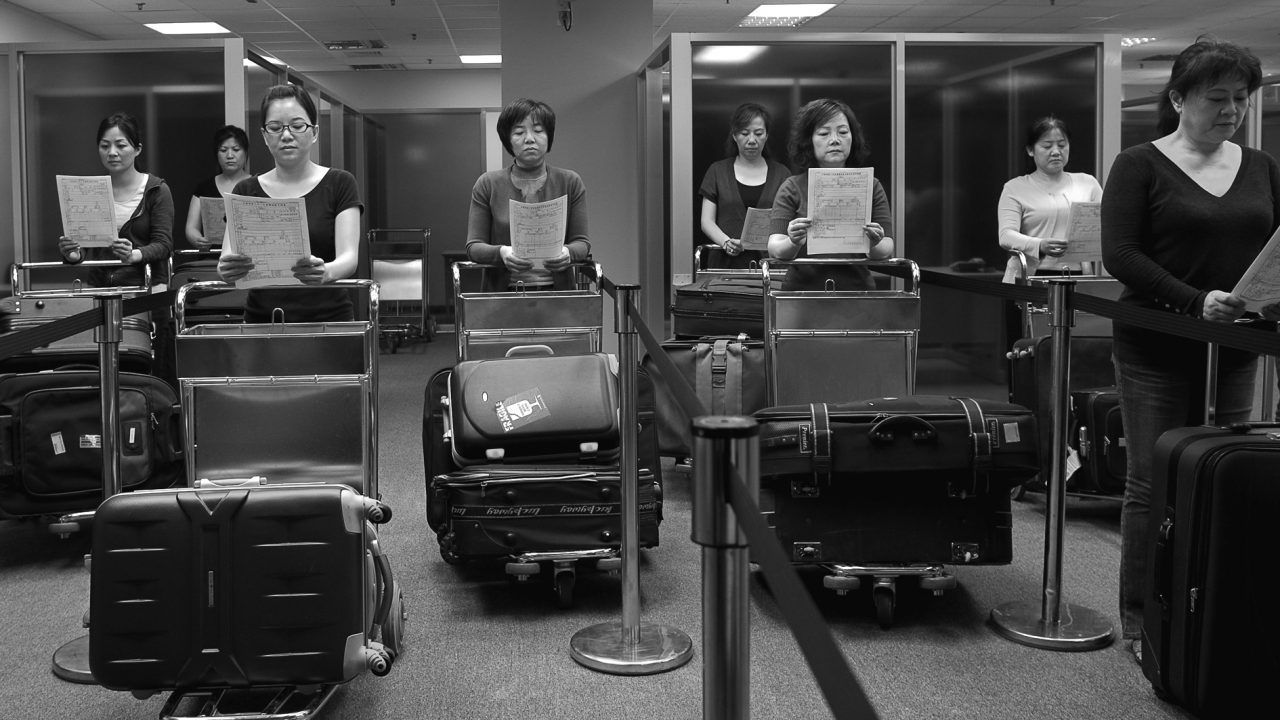
Empire’s Borders I
Video still
2008–2009
Single-channel video
26 minutes 50 seconds, on loop
Chen Chieh-jen: Detoxify Illusion with Māyā
2023.8.5 – 2023.10.22
Long March Space, Beijing
Chen Chieh-jen: A FIELD OF NON-FIELD
2017.10.28 – 2018.2.4
Long March Space, Beijing
Before the Beginning and After the End
Chen Chieh-jen, Hu Xiangqian, Ran Huang, Wang Jianwei, Wang Sishun, Xu Zhen produced by MadeIn Company, Zhou Xiaohu
2014.9.2 – 11.2
Long March Space, Beijing
ACT►TION
Chen Chieh-jen, Ran Huang, Liu Wei, MadeIn Company, Wang Jianwei, Wu Shanzhuan, Xu Zhen, Zhou Xiaohu
2011.6.25 – 8.28
Long March Space, Beijing
Chen Chieh-jen: Empire’s Borders I & II
2010.12.4 – 2011.1.10
Long March Space, Beijing
Long March Project: Ho Chi Minh Trail
Chen Chieh-jen, Liu Wei, MadeIn Company, Wang Jianwei, Wu Shanzhuan, Zhang Hui
2010.9.4 – 11.14
Long March Space, Beijing
Long March Capital III: Visual Economy
Chen Jie, Chen Qiulin, Guo Fengyi, Hong Hao, Jiang Jie, Lin Tianmiao, Liu Wei, Ma Han, Mu Chen and Shao Yinong, Qin Ga, Qiu Zhijie, Shi Qing, Wang Gongxin, Xiao Lu, Xiao Xiong, Xu Zhen, Yu Hong, Yang Shaobin, Yang Zhenzhong, Zhu Yu, Zhan Wang, Zhang Hui, Zhou Xiaohu
2008.5.17 – 8.25
Long March Space, Beijing
Awakenings: Art in Society in Asia 1960s–1990s
Chen Chieh-jen, Wu Shanzhuan
National Gallery Singapore, Singapore
2019.6.14–2019.9.15
Art Basel in Basel 2019
2019.6.13–6.16
The Exhibition of Annual of Contemporary Art of China 2017
Chen Chieh-jen, Yu Hong, Wang Sishun
Beijing Minsheng Art Museum, Beijing, China
2018.6.9 – 8.24
People Walking the Future
Chen Chieh-jen
The Museum of Contemporary Art Busan, Busan, Korea
2018.6.16 – 8.12
Discordant Harmony: Observations of Artistic Practices in East Asia at the Transition between the 1980s and the 1990s
Chen Chieh-jen, Zhan Wang
Beijing Inside-Out Art Museum, Beijing, China
2017.11.4 – 2018.2.4
Art and China after 1989: Theater of the World
Chen Chieh-jen, Liu Wei, Lu Jie(Long March Project), Wang Jianwei, Wu Shanzhuan, Xu Zhen, Xu Zhen produced by MadeIn Company, Yu Hong, Zhan Wang, Zhao Gang
Solomon R. Guggenheim Foundation, New York, USA
2017.10.6 – 2018.1.7
Please Come Back. The World as Prison?
Chen Chieh-jen
2017.2.9-5.21
Museo Nazionale delle Arti del XXI Secolo, Rome, Italy
Uprisings
Chen Chieh-jen
2016.10.18-2017.1.5
Jeu de Paume, Paris, France
Migration Politics
Chen Chieh-jen
2016.9.10-11.06
National Gallery of Denmark, Copenhagen, Denmark
Hangzhou Triennial of Fiber Art: Weaving & We
Chen Chieh-jen, Liu Wei
2016.8.25-10.25
Hangzhou, China
Aichi Triennale 2016: Homo Faber A Rainbow Caravan
Chen Chieh-jen, Liu Wei
2016.8.11-10.23
Aichi, Japan
Link
Screen Test: Chinese Video Art Since 1980s
Chen Chieh-jen, Wang Jianwei, Xu Zhen, Zhou Xiaohu
2016.7.2 – 8.28
CAFA Art Museum, Beijing, China
Tell me a Story: Locality and Narrative
Chen Chieh-jen
2016.5.28 – 8.14
Rockbund Art Museum, Shanghai, China
Biennale of Sydney: The future is already here – it’s just not evenly distributed
Chen Chieh-jen, Xu Zhen produced by MadeIn Company
2016.3.18 – 6.5
Biennale of Sydney, Sydney, Australia
Kochi-Muziris Biennale: Whorled Explorations
Chen Chieh-jen
2014.12.12 – 2015.3.29
Kochi-Muziris Biennale, Kochi, India
Shanghai Biennale: Social Facroty
Chen Chieh-jen, Ran Huang
2014.11.23 – 2015.3.31
Shanghai Biennale, Shanghai, China
The Power of the Public Realm
Chen Chieh-jen, Hu Xiangqian, Liu Wei, Wang Jianwei, Yang Shaobin
2014.6.25 – 10.10
Beijing Minsheng Art Museum, Beijing, China
Tales from the Taiping Era
Chen Chieh-jen, Wang Jianwei, Inga Svala Thorsdottir & Wu Shanzhuan
2014.5.23 – 8.24
Red Brick Art Museum, Beijing, China
2012 Frieze Art Fair London
Chen Chieh-Jen, Liu Wei, MadeIn Company, Wang Jianwei, Xu Zhen, Yang Shaobin, Zhang Hui, Zhan Wang
2012.10.11 – 10.14
Guangzhou Triennial: The Unseen
Chen Chieh-jen, Ran Huang, MadeIn Company, Wang Jianwei, Zhou Xiaohu
2012.09.28 – 12.06
Guangdong Museum of Art, Guangzhou, China
陈界仁谈《残响世界》在东京的放映与演讲表演
2016_artforum艺术论坛_陈界仁谈《残响世界》在东京的放映与演讲表演_文/杜可柯
变文与残响:陈界仁的影像、生产、行动与文件
2015_典藏金艺术_变文与残响:陈界仁的影像、生产、行动与文件_文/林怡秀 郑慧华
可见之外:非历史影像的未来
2015_ARTalks_可见之外:非历史影像的未来_文/孙松荣
History Repeating Itself
2010_Taipei Times_History Repeating Itself_文/巴诺亚
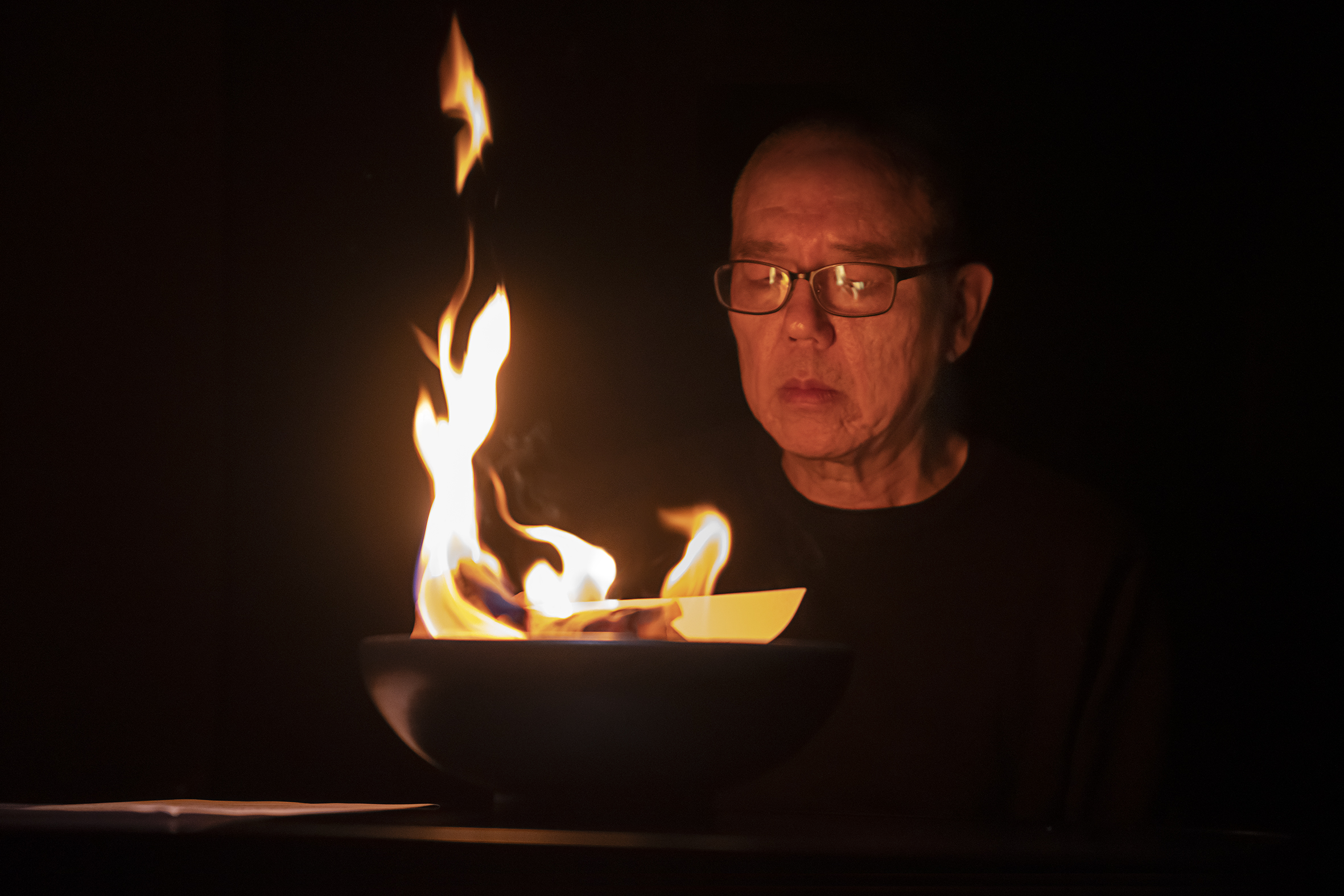
Chen Chieh-jen was born in 1960 in Taoyuan, Taiwan, and graduated from a vocational high school for the arts. He currently lives and works in Taipei, Taiwan.
While Chen’s primary media is video installation, in his production process, he has consistently experimented with community formation, integrating other participants with his film crew. This has added an activist quality directed at re-envisioning society in his creative process.
During Taiwan’s martial law period (1949 – 1987), a time marked by the Cold War, Chen employed extra-institutional underground exhibitions and guerrilla-style art actions to challenge dominant political mechanisms. After martial law ended, due to difficulties produced by an inability to understand or recognize history and reality, Chen gradually ceased making art, which lasted for eight years. During this period he re-examined his family history and experiences growing up, and reflected on the trajectory of Taiwan’s modern history. The environment of his youth was filled with places of discipline, governance, and illegitimacy, such as military courts, munitions factories, industrial areas, and illegal shantytowns.
This situation stemmed from Taiwan’s long history of subjugation, from Japanese colonization (1895 – 1945) to the Cold War/anti-communist/martial law mechanisms jointly created by the Kuomintang and United States in the post-World War II period. It was during this time that Taiwan joined the system of the capitalist and international division of labor, becoming an export-led, lower-end economy reliant on labor intensive, high polluting industries. After martial law ended in 1987, Taiwan was again remade, this time as a neoliberalist society.
Chen believes, “Taiwan’s historical and political situation of long-term domination and placement under the overlapping sovereignty of different nations has resulted in the complete disintegration of the people’s spirit. Taiwanese society has been repeatedly forced to become one with historical amnesia and has lost the ability to imagine and reflect on the future from the context of past.”
Returning to art in 1996, Chen started collaborating with local residents, unemployed laborers, day workers, migrant workers, foreign spouses, unemployed youth and social activists. He formed a temporary community and a film-making team with those marginalized by society, social activists and movie industry workers. They have learned from each other, occupied factories owned by capitalists, slipped into areas cordoned off by the law and utilized discarded materials to build sets for his video productions. In order to visualize contemporary reality and a people’s history that was obscured by neo-liberalism, Chen embarked on a series of video projects in which he used strategies he calls “re-imagining, re-narrating, re-writing and re-connecting.”
Although Chen addresses political and economic issues in his work, he believes that art should not only to criticize and reveal political and economic manipulation, but even more promote the creation of experimental communities and mutual learning in the process of filming his videos. Using poetic, dialectical imagery, Chen generates a different aesthetic and political imagination from difficult to articulate bodily experiences and memories, individuals in nebulous states of spiritual disintegration, and various indistinct or marginalized areas within society. Chen invites viewers from different historical, cultural, and social contexts and with different life experiences to deploy their imagination within the narrative gap he creates by linking disparate events and historical horizons, and using concise dialogs or completely silent, slow-motion video. As the audience watches Chen’s videos, imaginings evoked by these gaps help establish a forum for multiple dialogs and multiple dialectics.
He has held solo exhibitions at the Mudam Luxembourg; the Taipei Fine Arts Museum; Redcat art center in Los Angeles; the Museo Nacional Centro De Arte Reina Sofia in Madrid; the Asia Society in New York; and the Galerie nationale du Jeu de Paume in Paris. Group exhibitions include: the Venice Biennial, São Paulo Biennial, Lyon Biennial, Liverpool Biennial, Gothenburg Biennial, Istanbul Biennial, Moscow Biennial, New Orleans Biennial, Sydney Biennial, Taipei Biennial, Gwangju Biennial, Shanghai Biennial, Shenzhen Sculpture Biennial, Kochi-Muziris Biennale, Guangzhou Triennial, Fukuoka Triennial, and the Asia Pacific Triennial. Chen has also participated in photography festivals in Arles, Spain, and Lisbon. He was also the recipient of the Taiwan National Culture and Arts Foundation’s National Award for Arts in 2009, and the Korean Gwangju Biennial Special Award in 2000.

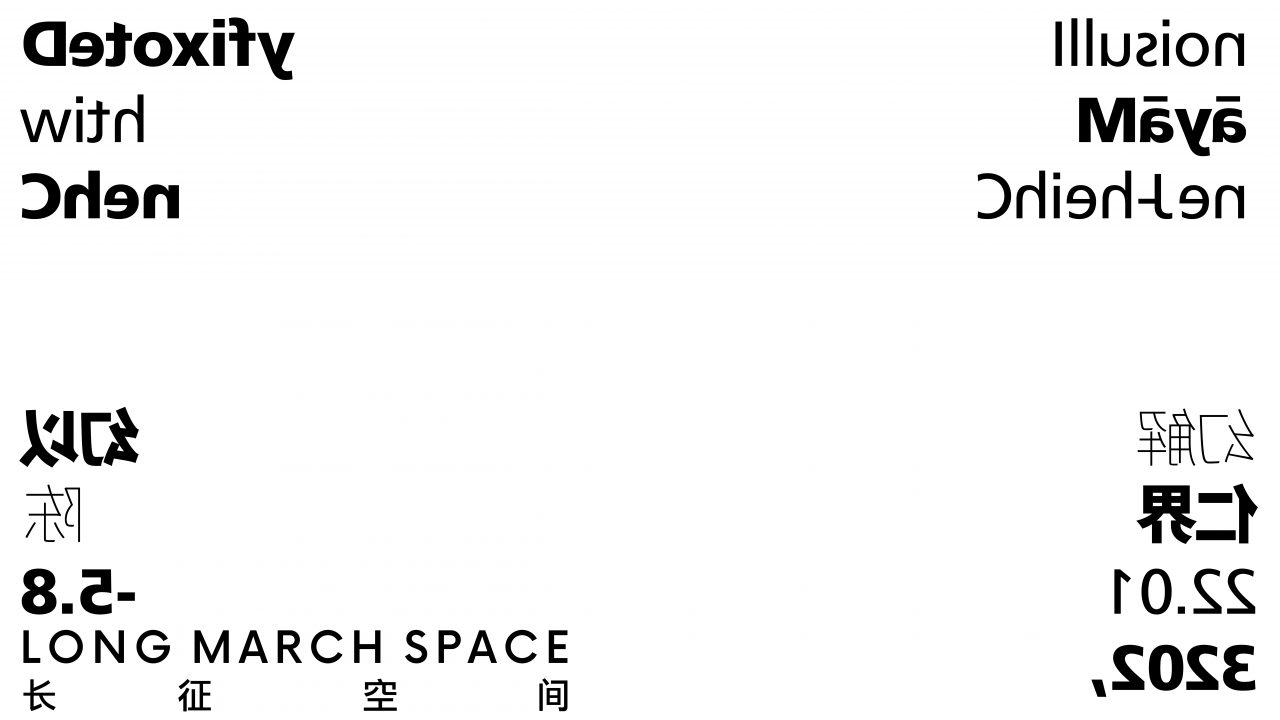
-e1509763307434-1280x720.jpg)
